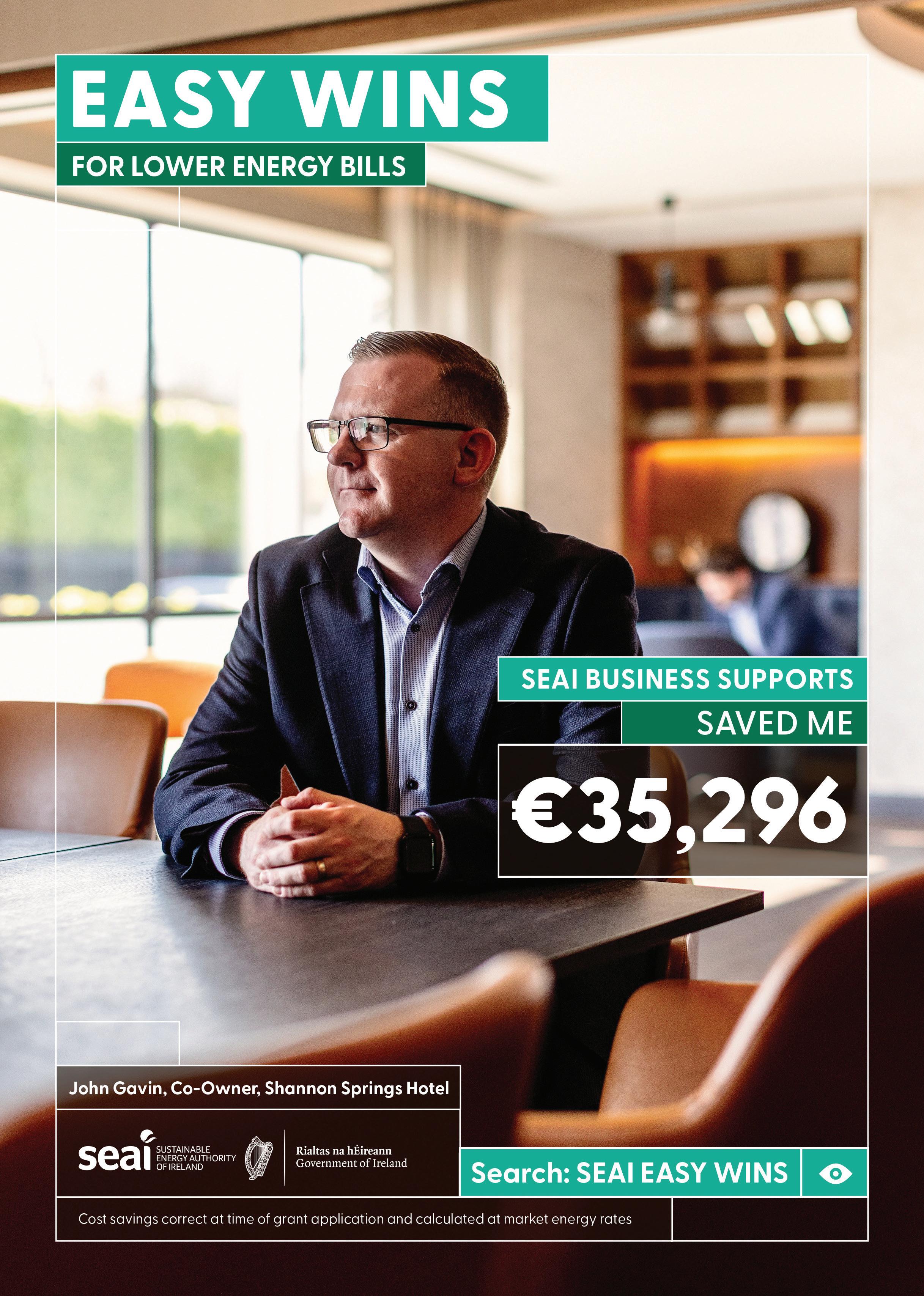
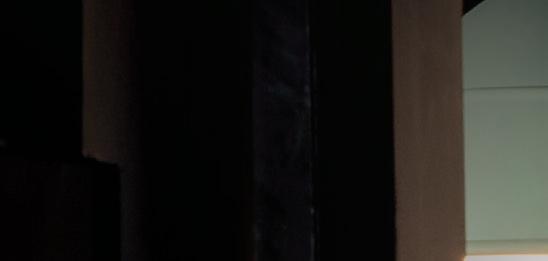



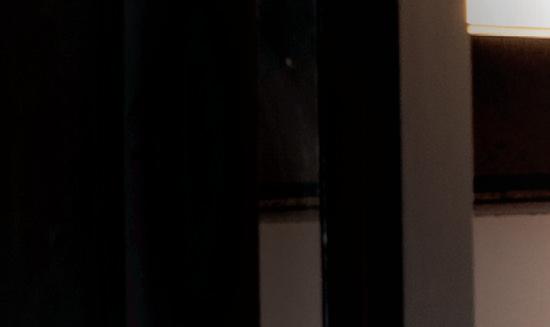














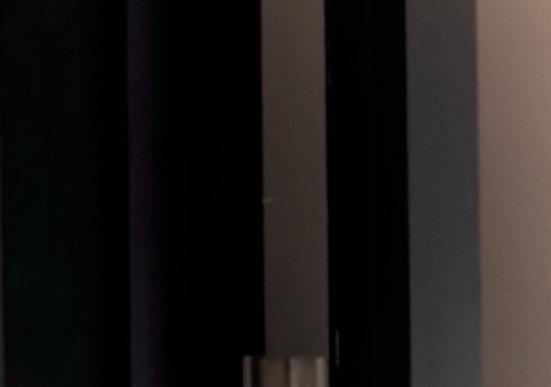
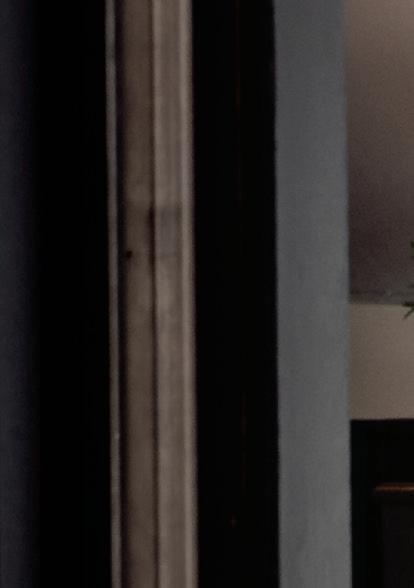



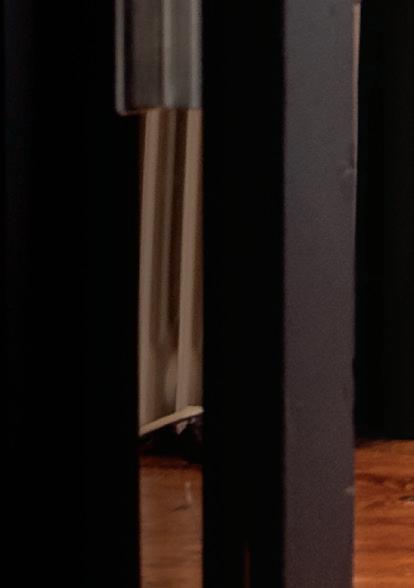



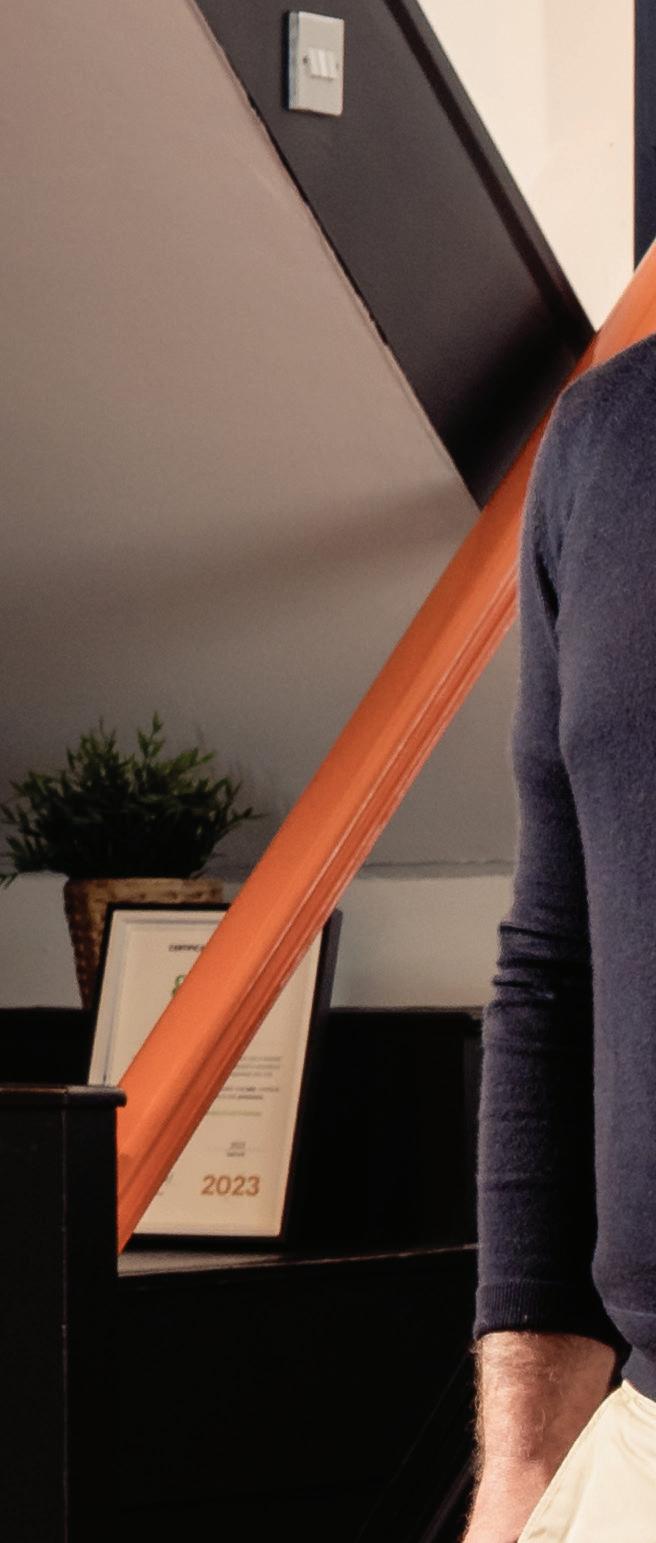
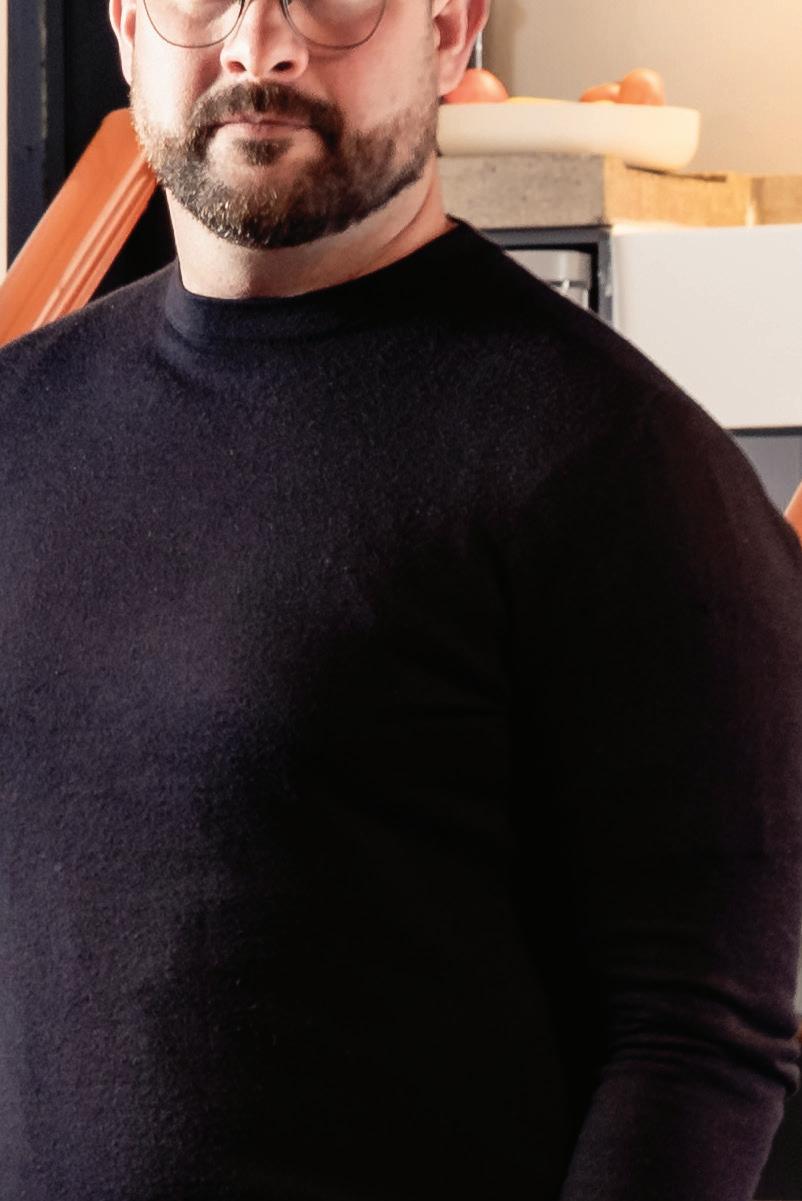

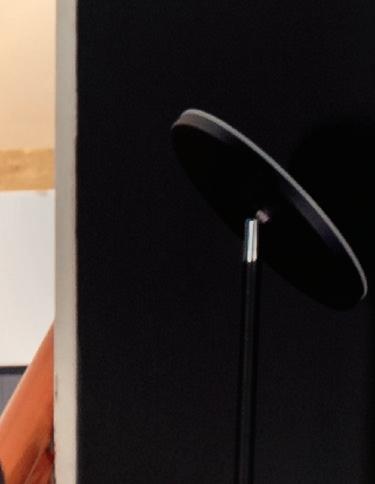













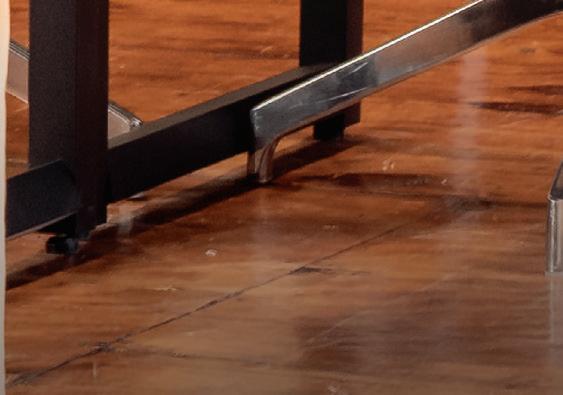




















































At Davy, our team of tax, pension and investment experts can help you navigate the complexities of retirement planning, offering bespoke pension advice and solutions.
Irrespective of how and when you plan to retire, we think a conversation with a member of our team is one worth having.

Conor Murphy Head of Regional Wealth

















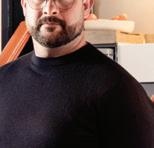













Paul McCarthy
Editor: Denise Maguire
Creative Director: Jane Matthews
Designer: Alan McArthur
Production Executive: Claire Kiernan
Managing Director: Gerry Tynan
Chairman: Diarmaid Lennon
Email: info@ashville.com or write to: Better Business, Ashville Media, Unit 55, Park West Road, Park West Industrial Estate, Dublin 12, D12 X9F9. Tel: (01) 432 2200
All rights reserved. Every care has been taken to ensure that the information contained in this magazine is accurate. The publishers cannot, however, accept responsibility for errors or omissions. Reproduction by any means in whole or in part without the permission of the publisher is prohibited. © Ashville Media Group 2025. All discounts, promotions and competitions contained in this magazine are run independently of Better Business. The promoter/advertiser is responsible for honouring the prize. ISSN 2009-9118 SFA is a trading name of Ibec.

For many businesses autumn represents a busy period and for the SFA it is no di erent with an array of events, campaigns, public consultations and a busy legislative schedule. e key policy event of the season was Budget 2026. e SFA secured some budget wins such as the VAT reduction from 13.5% to 9% for the hospitality sector and the renewed commitment to progress reforms to achieve a simpli ed regime that supports competitiveness and protects the tax base. Furthermore, the SFA also welcomed the expansion of the Research & Development tax credit from 30% to 35% as well as the increase in the lifetime limit on CGT (to which the relief applies) from €1 million to €1.5 million for disposals made from the 1st of January 2026.
Overall, this was a budget about long-term investment to x some of our major infrastructure issues which of course is welcome and prudent. But it would be remiss of me not to say that for our community, this budget was disappointing due to the decision to increase the National Minimum Wage by 65 cent to €14.15 per hour. e SFA was also disappointed that the Government has not introduced a temporary PRSI rebate for small businesses, which would o set the latest increase in the minimum wage. is was a key ask in the SFA pre-budget submission.
In this autumn issue of Better Business, we outline details of the SFA’s recent survey on AI usage within the small business community, as well as a report on the Government’s Action Plan on Competitiveness and Productivity which was launched in September.
e events page is packed with images of An Taoiseach Micheál Martin’s launching of the 2026 SFA National Small Business Awards, which will take place on the 5th of March. It is worth noting that next year’s awards features a new category for the ‘Best Family Business’ and it is in this spirit that the Sector Spotlight section focuses on family businesses.
ere are also images from the SFA’s recent appearance at the Joint Oireachtas Committee on Enterprise, Tourism & Employment, which held a special session on rising business costs.
In the Entrepreneurs feature, we talk to some of the businesses nominated in the ‘Workplace Wellbeing’ category at this year’s National Small Business Awards. e HR page features a special report on autoenrolment which is due to go live in January and on our travel pages, we focus on the opportunities for Irish businesses in Japan.
As always, Better Business is packed with company news, advice and stories from Ireland’s most innovative and active entrepreneurs. I hope you enjoy it.
Better Business is the magazine of the small business community. We welcome your feedback, suggestions and ideas to info@sfa.ie on X (Twitter) @SFA_Irl
David Broderick Director, Small Firms Association

Big News for Small Business News, views and profiles from SFA members and small businesses in Ireland 16
Credit Management
Philip Gleeson offers tips on how small businesses can reduce their unpaid invoices
28
Cover Story
Eoin Christian at Grid Finance on backing small businesses to make their own decisions
42 HR
With the deadline fast approaching, it’s time for employers to take action on auto-enrolment
Innovation
Skillnet Innovation Exchange is giving SMEs the chance to collaborate with business experts
AI
AI is here and small businesses are beginning to embrace it 19
Celebrating Excellence
Entries are now open for the 2026 SFA National Small Business Awards 32 Entrepreneurs
We chat with businesses about embedding wellbeing into their DNA
Niall Hill offers tips on how to build healthy habits while still enjoying festive treats
22
Sector Spotlight
Family businesses talk about building on legacy and succession planning
38
Top Tips
Jonas Breding on why enhancing customer engagement and futureproofing go hand in hand
52
Travel
With a skilled workforce and growing appetite for Irish produce, Japan has much to offer Irish companies


FROM TOP LEFT: Conor Carmody at Skillnet Innovation Exchange is helping businesses embrace innovation, page 11 //
Recruitment Managing Director Cora Barnes has built a company where people come first, page 34 // Eoin Christian at Grid Finance on backing small businesses to make their own decisions, page 28 // Patrizia Niehaus at KINTO Join Ltd explains how ESG reporting can increase your competitiveness, page 55

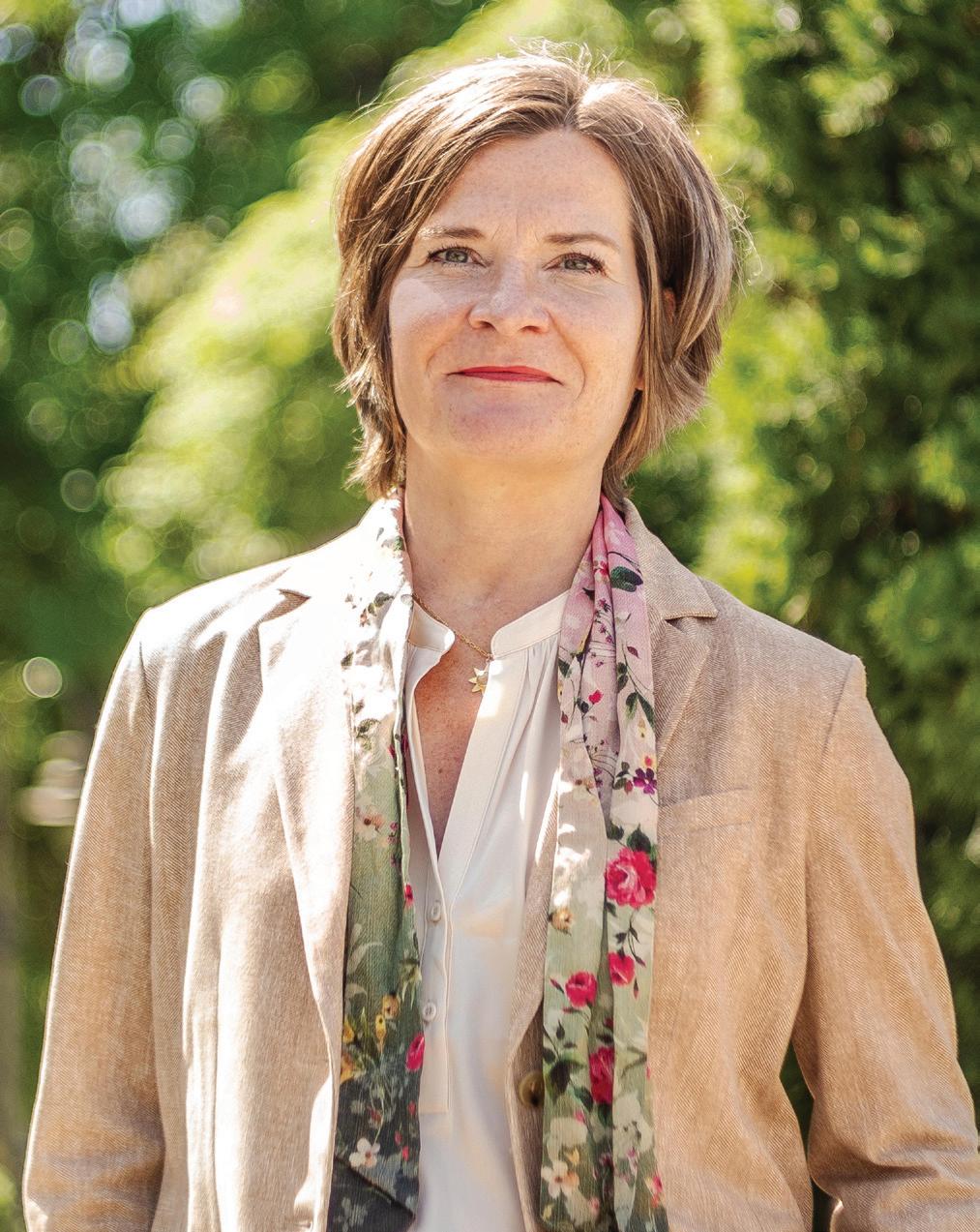
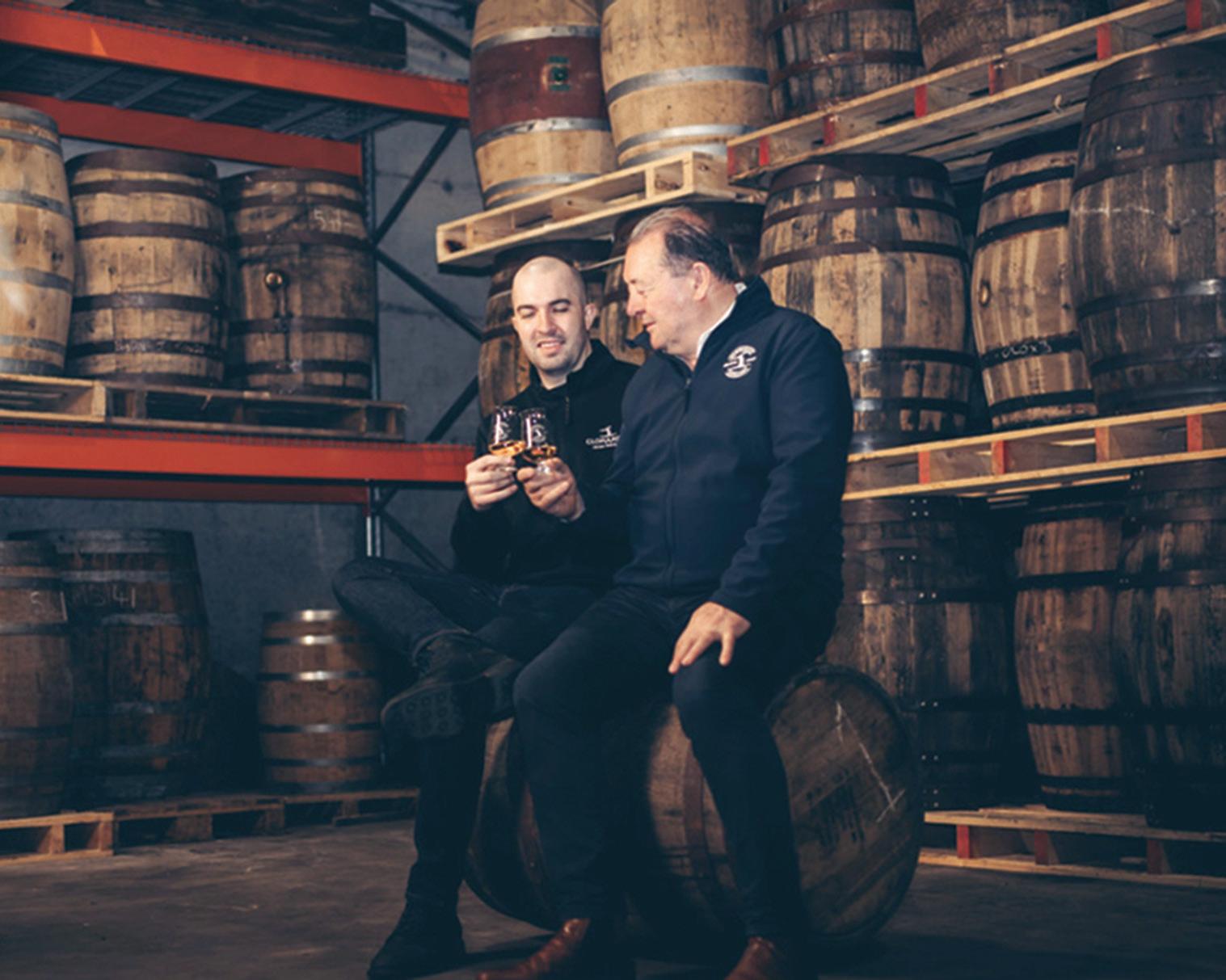
Clonakilty Distillery Strikes Gold in San Fran
Clonakilty Distillery secured a Double Gold Medal and an impressive 97 points at the 2025 San Francisco World Spirits Competition for its debut Single Pot Still Irish Whiskey.
Among over 5,000 global entries judged blindly by industry experts, only a select few received this distinction. For founder Michael Scully and his son, Sean, the award is more than a mark of quality – it’s a strategic asset. “We’re in the process of building international recognition,” says Michael. “This kind of accolade opens doors in competitive markets and gives us credibility and leverage with new distributors. It’s not just a win for the product – it’s a signal to the market that Clonakilty is a serious player.”
The distillery has been steadily expanding its export footprint, now reaching key markets across the US, Europe and Asia. With the spirits industry undergoing consolidation, Clonakilty is carving out a distinct identity – one rooted in tradition, but built for the global stage.
www.clonakiltydistillery.ie
Company Bureau has unveiled a refreshed brand identity and newly redesigned website, celebrating a major milestone of 40,000 company formations. Much has changed since Company Bureau was established nearly 30 years ago. Today’s entrepreneurs can launch and grow businesses from virtually anywhere, while established companies are evolving faster than ever. “That’s why our evolution is about more than just a new look. It’s a commitment to delivering smarter, faster and more intuitive experiences for every client we serve, whether you’re a start-up founder, professional advisor or part of a larger organisation,” said the company. It might be sporting a new look, but its high quality service remains the same. “Our experienced team in Dublin continues to provide expert, personal service, just as we have since 1997. We’re excited for what’s ahead and are continually investing in technology and people to make forming and running a company in Ireland more seamless than ever.”
www.companyformations.ie
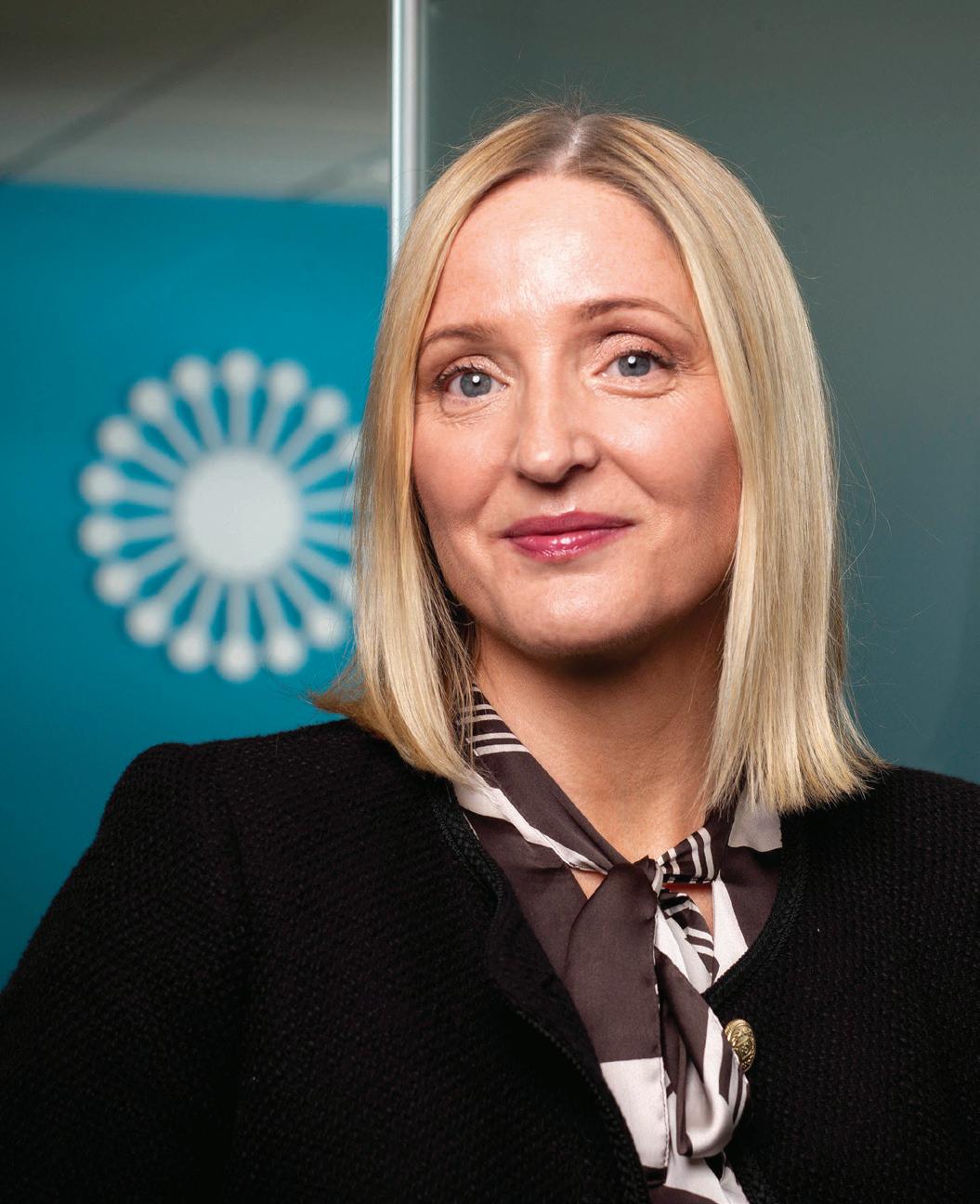
A new report from Auxilion shows that a third (33%) of workers in Ireland are applying for jobs in more innovative companies. The survey showed that almost a fifth (19%) of workers cited a lack of innovation as a reason for leaving their job. However, the top factors influencing this decision were poor salary (54%), lack of career progression (40%) and lack of opportunity (35%). Well over half (57%) of office workers said their company asks staff for feedback on innovation projects. Furthermore, 62% revealed that innovation by employees is encouraged in their workplace. Eleanor Dempsey, Director of Strategy, Innovation and Transformation, Auxilion, said: “To thrive, companies should embrace and empower change. That means investing in technologies to support automation and business process innovation. It also means focusing on the change management piece and implementing processes around cost optimisation, demand management and digital capability. In turn, companies can better navigate transformation and support innovation while retaining talent and driving success.”
www.auxilion.com
A new survey from LeanBPI has revealed that cost is the greatest inhibitor of digital transformation for small enterprises in Ireland. The research found that almost half (46%) of small business owners cite it as a top barrier. The research of 100 business owners in Ireland, running companies with 20 employees or fewer, also found that other major obstacles cited by businesses included legacy systems and cybersecurity risks (36% each) and connectivity issues (29%). The latter appears to be a significantly greater issue for organisations who are fully remote, with 37% who operate this working model saying connectivity is a barrier. Despite concerns among small enterprises regarding the cost of digital adoption, 34% admit they have not made use of any Government digital supports. However there is strong interest, with 75% expressing a desire to learn more about them. John O’Shanahan, Founder and Managing Director, LeanBPI, said: “Although cost is a significant factor in digital adoption, Government grants can substantially ease the financial burden for small enterprises. With external pressures and intensified competition at play, small enterprises risk falling behind if they fail to adapt to the digital environment. It’s essential that they conduct their own research and engage with their Local Enterprise Office Network to help break down the barriers to digital adoption.”
www.leanbpi.ie

@businessposthq
Danny McCoy, the chief executive of Ibec, said it was now “imperative” that the EU and the UK jointly mitigate “additional destabilising and damaging impact” on trade as a result of tariffs.
@IRLDeptPER
@jackfchambers and Minister of State @ EmerHigginsTD have announced major progress in Ireland’s digital infrastructure Ploughing Championships today - new high-speed government network and satellite services for remote areas.
@eirevo
@carthy_aubrey
Jun 11Today I met with the Small Firms Association
@SFA_Irl to discuss what SME’s are facing in the marketplace. Looking to see what supports are out there for the backbone firms of our economy.
@OireachtasNews
@ibec_irl
Budget 2026 ended a streak of ‘giveaway’ budgets in recent years. As expected, the primary focus of this year’s budget was on long-term investments and capital spending, with particular focus on stimulating housing. While the focus on enterprise is encouraging, the news for small businesses was less rosy.
The decision to increase the National Minimum Wage by 65 cent to €14.15 per hour in Budget 2026 is a disappointing outcome. Furthermore, the SFA is also disappointed that the Government has not introduced a temporary PRSI rebate for small businesses which would offset the latest increase in the minimum wage.

However, the SFA was encouraged with the reduction in VAT from 13.5% to 9% for hospitality outlets, catering businesses and hairdressers. However, that reduction will only benefit around a quarter of small businesses nationwide. The SFA also welcomes the expansion of Research & Development tax credit from 30% to 35% and the financial commitments to the National Development Plan to improve the country’s infrastructure. The SFA also welcomed the decision to enhance the existing Capital Gains Tax Revised Entrepreneur Relief by increasing the lifetime limit on gains to which the relief applies, from €1 million to €1.5 million.
Reacting to Budget 2025, David Broderick, SFA Director said: “The latest increase to the National Minimum Wage provides no comfort for most small business owners who are struggling with spiralling business costs. This increase will halt investments and lead to job losses in various sectors.”

“With current uncertainty in the global economic environment, it is vital that our small businesses are strong, adaptable and ready to meet any challenge.”
Taoiseach Micheál Martin at the launch of the 2026 SFA National Small Business Awards

“Small businesses, defined as enterprises that employ up to 50 people, make up around 98% of all businesses in the country, employing around 43% of the total private sector workforce. This is proof that entrepreneurial spirit is in the DNA of our nation.”
Geraldine Magnier, SFA Chair, addressing the Joint Oireachtas Committee on Enterprise, Tourism and Employment
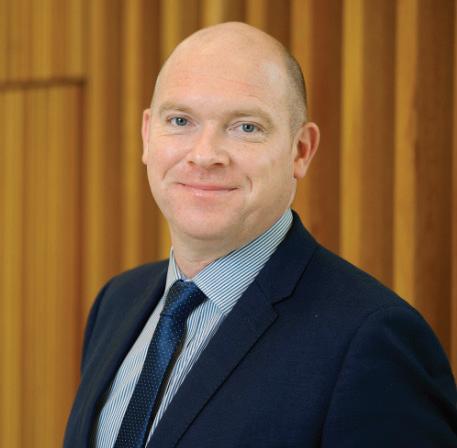
“Small businesses will need to adopt AI strategically to keep up with large businesses to survive. At a time when various business costs are spiralling, AI has the potential to boost productivity, enhance efficiency and ultimately lower operational costs.”
David Broderick, SFA Director, reacting to the SFA’s AI Survey

Commercial litigation firm, Carlisle Solicitors, achieved a perfect 100% score in the LQSA ‘Q9000’ audit for the ninth year running. Carlisle Solicitors, along with parent company Tracey Solicitors LLP, is the only law firm in Ireland to achieve this award for more than five consecutive years. The Q9000 is an independent audit that recognises elite law firms who have exceptional risk and quality procedures in place. Paul Tracey, Founder and Principal of Carlisle Solicitors, said: “We are extremely proud of the mammoth effort put into this from every single team member across both businesses. This is very rewarding for us and inspires us to continue to deliver best in class services to our clients.”
www.carlislesolicitors.ie
Mobility Partnership Ireland (MPI), the national coalition of shared transport providers, is calling on the Government to reduce VAT on shortterm bike and car rental services from 13.5% to 9% as part of Budget 2026 to further incentivise bike-share take-up by urban commuters. It would, says the organisation, boost the affordability and uptake of shared mobility services across our cities, while delivering tangible progress on national climate and transport goals. Chairperson of Mobility Partnership Ireland, Hugh Cooney, said: “Reducing VAT to 9% would directly lower costs for commuters, making it more attractive to choose bike-share or short-term car rental for daily trips. At the same time, it would enhance the commercial viability of operators who are investing in more sustainable, techenabled mobility options. This is a modest but meaningful step the Government can take to reduce car dependency and accelerate progress toward climate and transport targets.”
www.mpi.ie

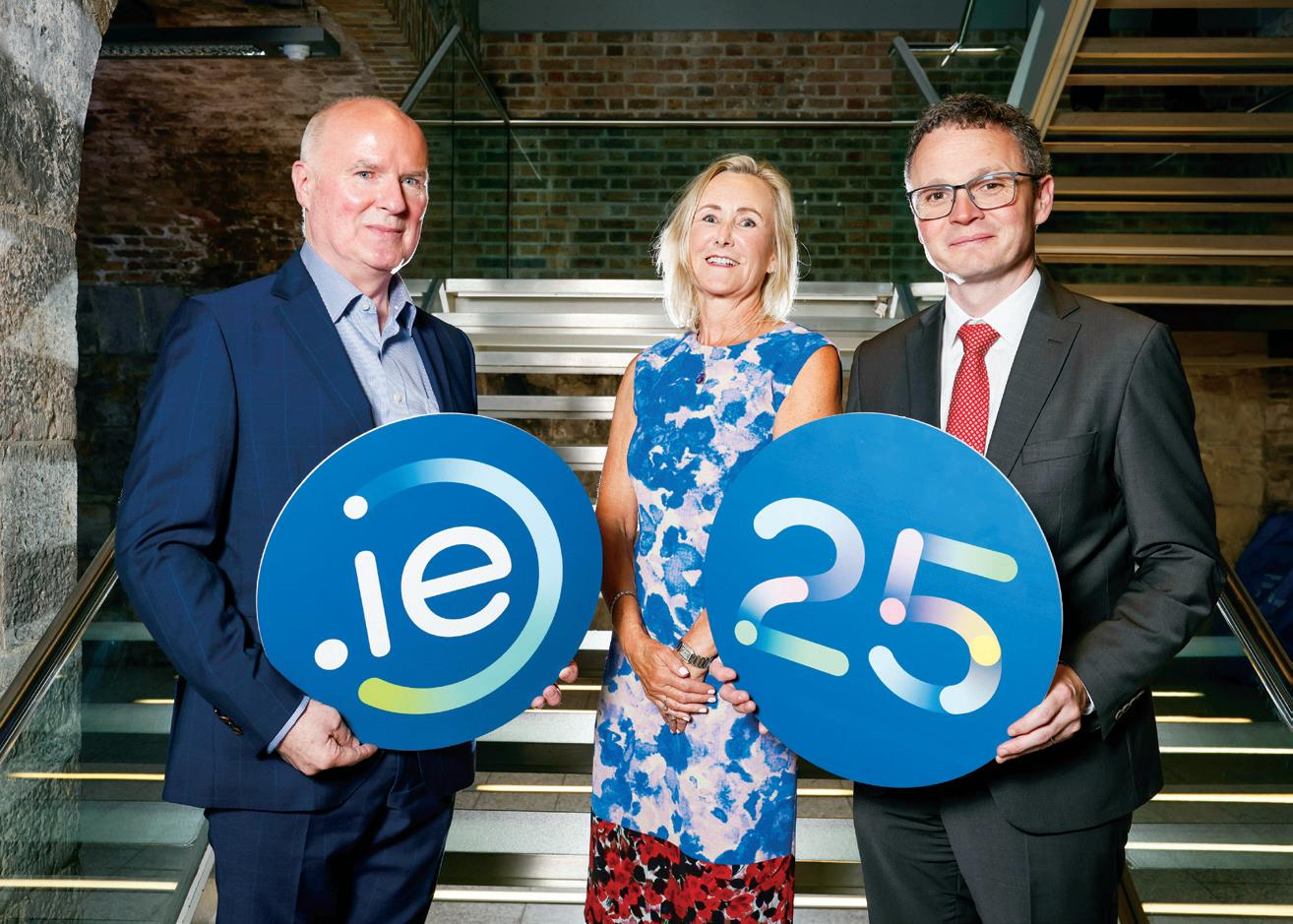
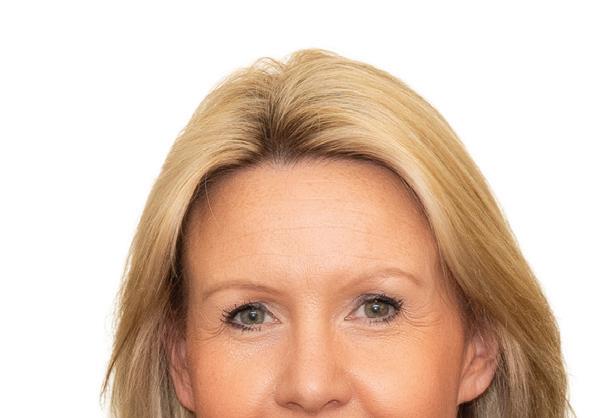
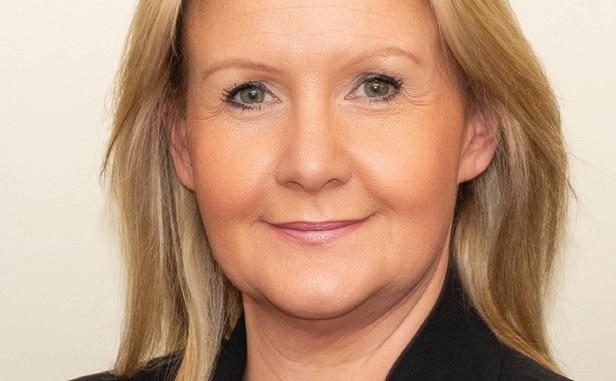

.ie marked its 25th anniversary with a celebration at the EPIC Museum in Dublin, attended by Minister for Culture, Communications and Sport Patrick O’Donovan, CEO David Curtin and key stakeholders from Ireland’s digital and business community. Over the past 25 years, .ie has mirrored Ireland’s digital transformation. In 2000, just 20,000 .ie domains were registered. Today, that figure stands at over 330,000, a 2,000% increase demonstrating how the .ie domain has supported businesses to thrive during turbulent economic times and global pandemics. Household internet access has also grown from 20.5% in 2000 to 94% today, making online connectivity standard in almost every home and an online presence an expectation of Irish consumers. As part of the anniversary, .ie launched .ie Gives Back, a 25-day charity initiative where €1 from every .ie domain registration and renewal was donated equally to five charities – An Cosán, DSPCA, Make-A-Wish Ireland, Focus Ireland and UNICEF Ireland.
www.weare.ie
Multyhome is transforming recycled car tyres into durable, stylish garden products that make sustainability simple. Its innovative range, manufactured in the EU, includes decorative planters, sturdy border edging, practical stepping stones and hardwearing door mats – all crafted from repurposed materials. By giving discarded rubber new life, Multyhome helps reduce landfill waste while offering weather-resistant products, built to withstand the elements. Each piece combines functionality with contemporary design, proving eco-conscious choices don’t mean compromising on quality or style.

Ideal for homeowners and landscapers seeking sustainable solutions, Multyhome products bring both practicality and environmental benefits to outdoor spaces. www.dssupplies.com
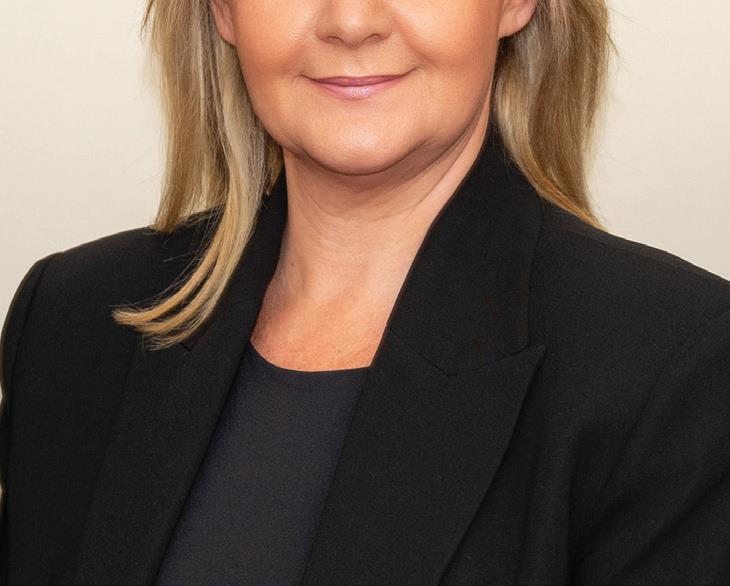
Carroll Food Services Ltd has announced the appointment of Carole O’Neill as Business Development Manager. Carole joins the company following a 14-year tenure as Director of Kyles Events & Catering Ltd, bringing with her more than two decades of senior management experience in the corporate catering and event management sectors where she oversaw multi-site operations and hospitality venues spanning cafés, bars and restaurants. Carroll Food Services, which celebrated 30 years in business in 2024, continues to build on its legacy as a family-run leader in specialist contract catering with operations across 20 sites in the Republic of Ireland, including contracts in pharma, healthcare, education, business and industry.
www.carrollfoodservices.com

















boost skills - boost business




Future-proof your skills with Skills to Advance Micro-Qualifications - short, targeted courses, at little or no cost, in key areas like sustainability, digital business skills, market development, and more.
Stay ahead by contacting your local Education and Training Board or visit skillstoadvance.ie.
Supported
and






CONOR CARMODY, PROGRAMME DIRECTOR AT SKILLNET INNOVATION
EXCHANGE, EXPLAINS HOW PATHWAY TO INNOVATE CAN HELP SMES EMBED INNOVATION INTO THEIR BUSINESSES
What is Pathway to Innovate and why should it matter to Irish SMEs?
I am the Director at Skillnet Innovation Exchange, which connects businesses facing innovation challenges with ambitious technology providers that fast-track solutions. Pathway to Innovate is a new initiative brought to you by Skillnet Innovation Exchange and IRDG to support SMEs in embedding innovation and entrepreneurial practices into their organisation. By identifying relevant supports and delivering tangible upskilling programmes, Pathway to Innovate assists SMEs in easily identifying relevant supports through a single, local regional hub.
A lot of small businesses know they should innovate but aren’t sure where to start. What’s the first step you recommend?
Innovation is a recognised driver of competitiveness, resilience and growth within SMEs. However, in Ireland, innovation in small to medium-sized enterprises (SME) remains a challenge. e rst step is to understand where opportunities for innovation exist within your business and we o er a diagnostic to assist in completing this step.
Pathway to Innovate brings together funding, training, mentoring and more. How can SMEs figure out which supports are right for their specific needs?
Pathway to Innovate helps SMEs to better understand their needs, challenges and opportunities by:
• Providing access to a regional presence by delivering the programme in existing regional hubs
• O ering Innovation Clinics and diagnostic tools to help SMEs diagnose business challenges, assess internal skills capacity and identify relevant opportunities
• Providing navigation and access to existing supports such as Enterprise Ireland, LEOs and Regional Skills Fora directly related to their diagnosed needs
• Helping SMEs with targeted and relevant learnings to drive innovation and entrepreneurial practices in their business.
What are some of the most common barriers you see SMEs face when trying to innovate?
Irish SMEs are underperforming in RD&I compared to their EU counterparts in comparable economies. Key challenges include skills gaps, limited resources and competition from larger rms. Addressing these

gaps is essential for SMEs to adopt new technologies, meet market demands, scale their business and enhance competitiveness. SMEs need support to better understand their business and talent needs before engaging in training, along with improved navigability across the skills system and a regional presence where they can access these supports. Acting as a connector, Pathway to Innovate will develop a scalable program through the regional hubs and customise programmes to meet gaps in provision where there is proven industry demand. We’ll also develop a single point of access to innovation programmes for SMEs in those regions and connect with other state agencies and networks to o er a central point of support to SMEs.
Looking ahead, what kind of measurable results do you hope Irish SMEs will achieve by engaging with this initiative?
By identifying precise needs, SMEs can invest in targeted training, reducing training costs and increasing the return on investment. ey can quickly identify and access relevant training programs, funding opportunities and support services. Reduced time spent navigating complex systems allows SMEs to focus on core business activities. In addition, regional hubs can tailor support to the unique needs of the local business community. By engaging in Pathway to Innovate, SMEs can experience tangible improvements in workforce development, operational e ciency and overall business success.
Interested SMEs should sign up at pathwaytoinnovate.ie




















he AI revolution is the most transformative change to commerce since the dawn of the internet age. It's the latest step in the centuries-long technological evolution of how businesses operate. AI has the potential to outstrip all these advancements and do so within months.





Recently, the SFA’s now annualised National Small Business Survey included a range of questions dedicated to AI usage. e survey, conducted by Amárach, found that nine out of 10 small businesses use AI tools for one or more business processes. e most common uses are for automation of simple tasks and data analytics reporting. is is particularly bene cial to small business owners who tend to be quite ‘time poor’. Of those using AI technology, two-thirds of respondents said they use it for sales and marketing functions.



e survey found that the main barrier to deeper adoption of AI is the lack of technical expertise, followed by time pressures and a lack of a clear business strategy. is is why the Government must work with the small business community to leverage an unlocked National Training Fund (NTF) to fund investment in upskilling programmes dedicated to AI.







e sentiment around adopting AI tools is broadly positive, particularly amongst providers of nancial and professional services. Over two thirds of businesses said that they are either enthusiastic or curious about using AI tools.
When the research was published, David Broderick, Director of the Small Firms Association, said: “AI is the de ning technology of our time and it will fundamentally shi how business is done. While the survey shows that small businesses are interested and curious about it, AI adoption remains shallow among small rms as it is mostly con ned to content generation and simple data analysis, rather than innovation, product development or decision-making. erefore, many businesses have not yet explored its full potential.



“Small businesses will need to adopt AI strategically to keep up with large businesses to survive. At a time when various business costs are spiralling, AI has the potential to boost productivity, enhance e ciency and ultimately lower operational costs.”















9 OUT OF 10

SMALL BUSINESSES USE AI TOOLS FOR ONE OR MORE BUSINESS PROCESSES



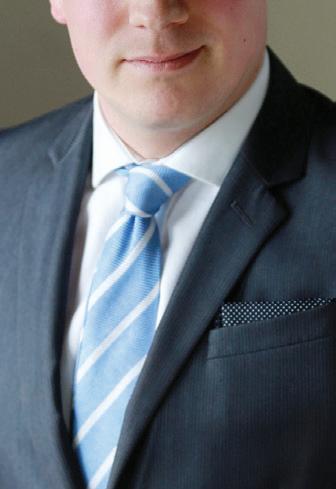




USE AI FOR SALES AND MARKETING FUNCTIONS






















The Irish Government is Open for Business — and We Want You There. Government Supply Expo 2025: Pathways to Public Tendering

Tuesday, 11th Nov 2025
9am - 4pm Aviva Stadium, Dublin



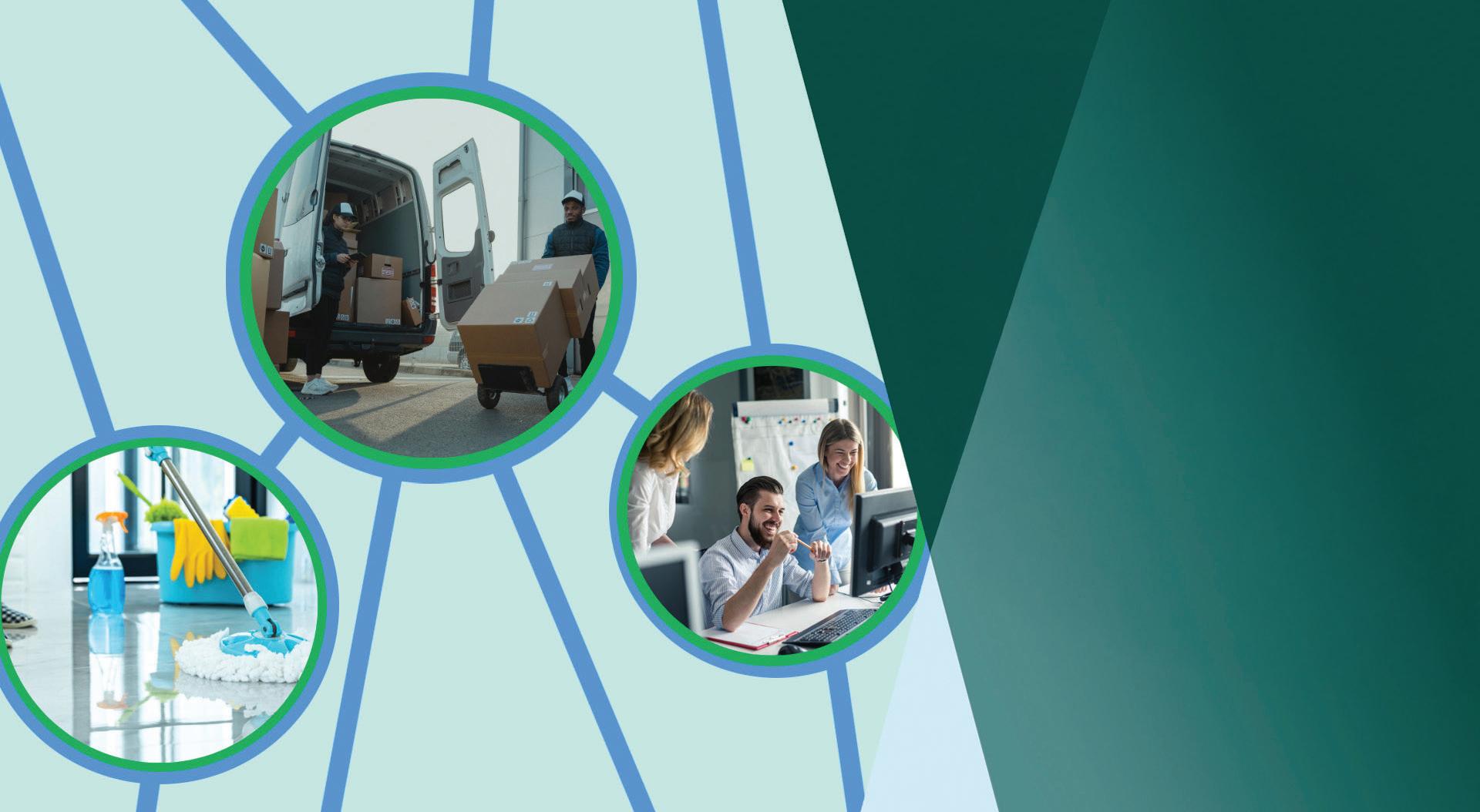








FREE to attend Registration now open


The Office of Government Procurement (OGP) in partnership with InterTradeIreland is hosting Ireland’s largest public procurement event — and it’s your opportunity to meet the buyers, decision-makers, and procurement teams behind billions of euro in government spending.
Whether you’re an SME, micro-enterprise, or growing supplier, this is your chance to:
• Network directly with procurement leads from all major Government departments and sectors
• Discover upcoming tender opportunities across goods, services and construction related works
• Attend expert-led talks and panel discussions on how to win public contracts and navigate the tendering process.
• Learn about the many supports available to SMEs including InterTradeIreland’s award-winning Go-2-Tender programme, offering insightful workshops, topic specific masterclasses and tailored 1:1 mentoring.
• Explore over 40 exhibitors in one day via our interactive event app

Scan to register for the event and for full event details

Scan for more information on InterTradeIreland’s Go-2-Tender programme
The Irish Government is committed to improving access for small businesses — don’t miss this opportunity to break into or expand in the public sector. It’s free. It’s valuable. It’s where your next opportunity might be.






















































































It is a pivotal time for business owners across Ireland, as the coming months will require them to make significant and potentially far-reaching decisions regarding the best approach to pension coverage for their workforce.
From 1 January 2026, auto-enrolment will go live in Ireland under the new My Future Fund scheme. This marks a major shi t in pension delivery, requiring all businesses to assess its impact. Over the coming months, employers must review their current pension arrangements and determine what changes, if any, are required to meet their obligations under the new requirements.
Businesses already providing an
occupational pension scheme to their employees may believe that they don’t need to take any action but unfortunately, it’s not so simple. These employers will need to evaluate whether their existing scheme is su cient to meet all their auto-enrolment obligations under the new rules. In some cases, it may be necessary to review and potentially update the membership criteria of their occupational pension scheme to ensure that all employees who would otherwise be auto-enrolled are adequately covered by existing measures.
On the other hand, businesses that do not currently o er an occupational
“IT IS ALSO AN OPPORTUNE TIME TO ASSESS WHETHER THESE SCHEMES ARE TRULY FIT FOR PURPOSE”
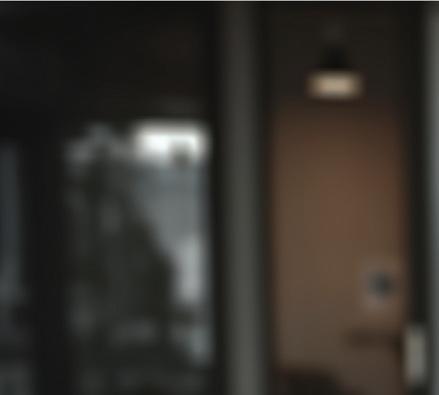

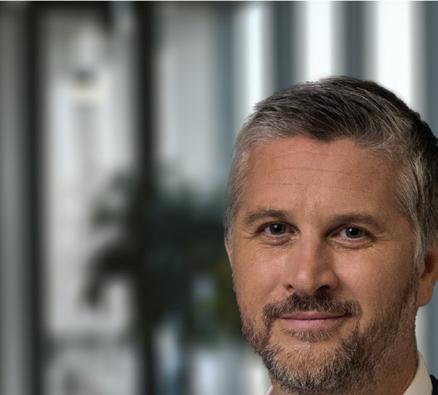

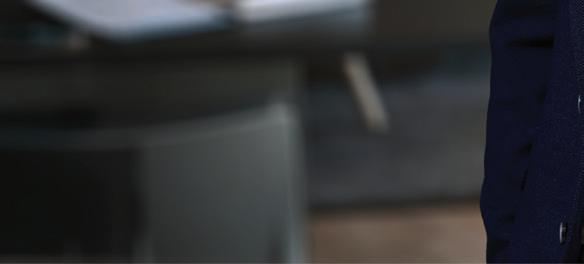
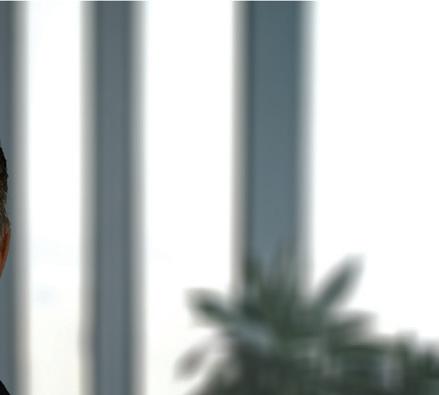



pension scheme will face a di erent set of decisions. They will need to consider whether to establish a company pension scheme from scratch or to simply sign up to the new My Future Fund. Each option comes with its own set of implications, costs and administrative requirements, so careful consideration is essential.
As businesses decide how best to structure their pension arrangements in this new regulatory environment, it is also an opportune time to assess whether these schemes are truly fit for purpose, not just for the wider workforce, but also for the needs of business owners and senior management.
Standard schemes that o er limited investment flexibility and lack access to tailored advice are unlikely to suit those with more complex financial needs.
Business owners and senior managers typically require more from their pension arrangements. Personalised advice and guidance on how to fund your retirement is essential, as is access to holistic financial planning that considers a wider range of objectives. These individuals also value much greater investment flexibility and a broader array of options.
For many business owners, the best approach may be to provide access to a separate pension scheme, distinct from the one provided to the wider workforce, that provides members with a dedicated financial adviser, more sophisticated investment options and a personalised financial planning framework. Given the choices that businesses face in the months ahead regarding the future of their pension funding, now is the time to decide not only how to best meet the needs of their sta , but also how to ensure that the needs of owners and senior management are fully addressed.
For more information, see www.davy.ie/pensions






WITH THREE IN 10 SMALL TO MEDIUM BUSINESSES FORCED TO WRITE OFF BAD DEBTS IN THE LAST 12 MONTHS, IT’S NO SURPRISE CASHFLOW IS A MAJOR ISSUE. PHILIP GLEESON OUTLINES HOW BUSINESSES CAN REDUCE THEIR LEVELS OF UNPAID INVOICES



Credit management is a problem faced by all businesses, but small and medium businesses feel the pinch more acutely. Unfortunately, companies not paying their debts is something we see at Carlisle Solicitors all the time. For smaller businesses, this has a massive knock-on e ect on cash ow and how the business is run. It’s frustrating for small business owners to be putting in the hard yards, only to not get paid what they’re rightly owed. ese businesses are o en at their wits end trying to chase down funds owed to them. When it happens a few times, it can actually push a business to breaking point and lead them to shut down completely.


While sheer persistence in chasing bad debts can result in recovering some or all of the money owed, there are simple steps that businesses can take to help minimise the losses they experience over the course of a year and save time and e ort along the way.


















Before you sign a contract for business, do your research and nd out who you are getting into business with. Companies may have a number of di erent trading names, so make sure the correct one is on your contract or invoice. We’ve seen companies intentionally recite an incorrect entity name on the contract, especially if they have a history of non-payment and have been through the debt recovery process before.



If you need to pursue a company legally through the Courts, it’s crucial to identify the correct entity. Failure to do so could leave you open to an order for costs. e following simple steps can be taken to mitigate any loss or confusion:

With all business agreements, written records should be kept of all agreed services and arrangements. Where possible, formal Terms of Business should be agreed and signed. However, in the absence of signed Terms, details of the agreed goods/services should be set out in writing, together with proposed fees. It might sound obvious but when you’re running a business, stay away from WhatsApp or text messages as much as possible. An email chain or proper paperwork is much more reliable.



Company searches should be carried out to identify your customer. Free searches are available online at the Companies Registration O ce website. ese searches will help you identify the correct entity, as well as highlighting any ‘red ags’. For example, details of previous judgments may be published. If there is €20,000 of registered debt against a company, you might want to reconsider doing business with that company. ey may have a history of not paying their invoices.
Request the customer’s company number and/or VAT number. ese numbers can be used to identify the correct entity.
Check the company’s Privacy Notice, set out on their own website, to con rm the entity. O en a company will carry out work under a trading name. However, a company’s Privacy Notice should set out the correct legal entity.



If you’re providing a service and the scope of that service changes along the way, make sure it’s formalised and in writing. For example, if you’re a builder and the original scope of the project is to build a wall but during the project the customer asks to have an additional wall built, make sure this is properly documented. It’s not always easy to say, ‘put that in writing for me’ but once you do it a few times, it becomes second nature and it will stand to you if there’s any disagreement down the line in terms of what is owed.

Each of these steps take no more than ve minutes, but can save a company a lot of money and time further down the track.
Following a telephone conversation, a brief note of the call should be made, summarising the points discussed and emailed to your customer. ere’s no point in keeping diligent records if emails are being deleted or relevant paperwork shredded; you never know what will prove useful in the future. e goal is to support and protect your company’s position. Having written records to hand will provide a clear narrative of all terms which have been agreed between the parties.










e procedure should be tailored to your businesses needs but it could be as simple as:
Sending an email reminder requesting payment within a speci ed timeline
If monies remain outstanding, follow up with a phone call, which is properly recorded

Having a clear credit control procedure in place highlights to clients that the business takes credit management and cash ow seriously. A blanket approach to credit control is best. While allowances can be made for speci c clients, a clear credit control procedure ties all clients to the same terms when it comes to making payment. Following receipt of the invoice, your client is entitled to a 30-day period within which to make payment. If payment is not received a er 30 days, this is where the credit control procedure kicks in.
A nal formal warning letter before the matter is referred to a solicitor.
Spend a few minutes dra ing standard wording for your emails and letters to chase debtors for payment. Have it on le so you can use it for all clients to save you time and energy.


If something doesn’t feel right when you’re dealing with a client, don’t ignore it; listen to your own business instincts. ink carefully about whether any of the points above have highlighted any ‘red ags’ and be mindful of the risk of non-payment. If necessary, take steps to reduce your nancial risk, such as taking a deposit or agreeing to milestone payments. And if all else fails, don’t be afraid to walk away. Sometimes walking away from a client you aren’t sure about can be the most pro table decision.




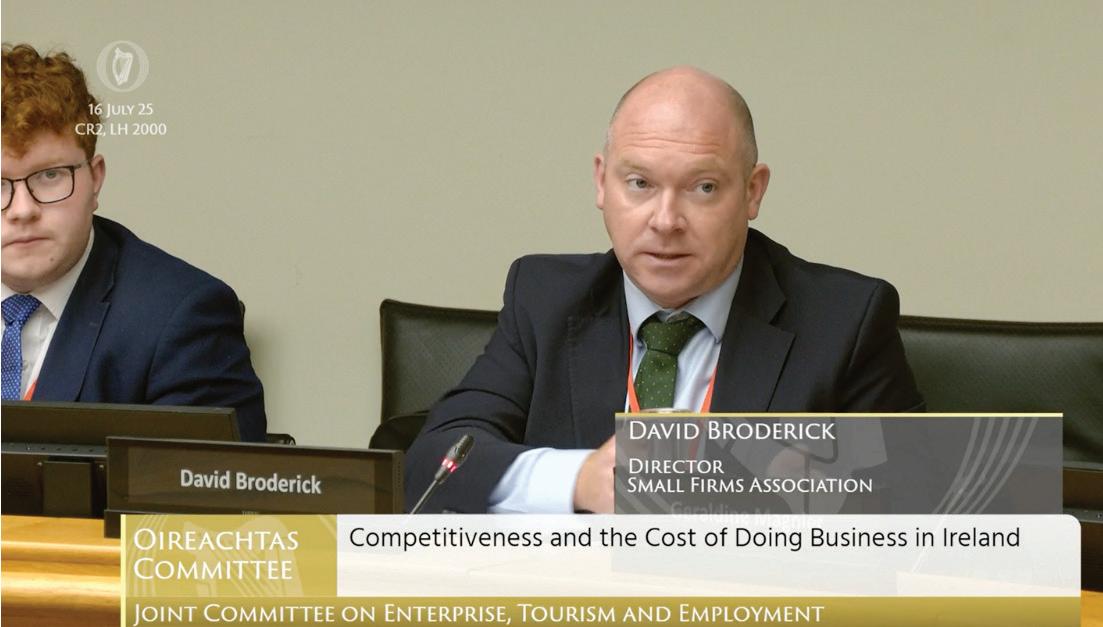
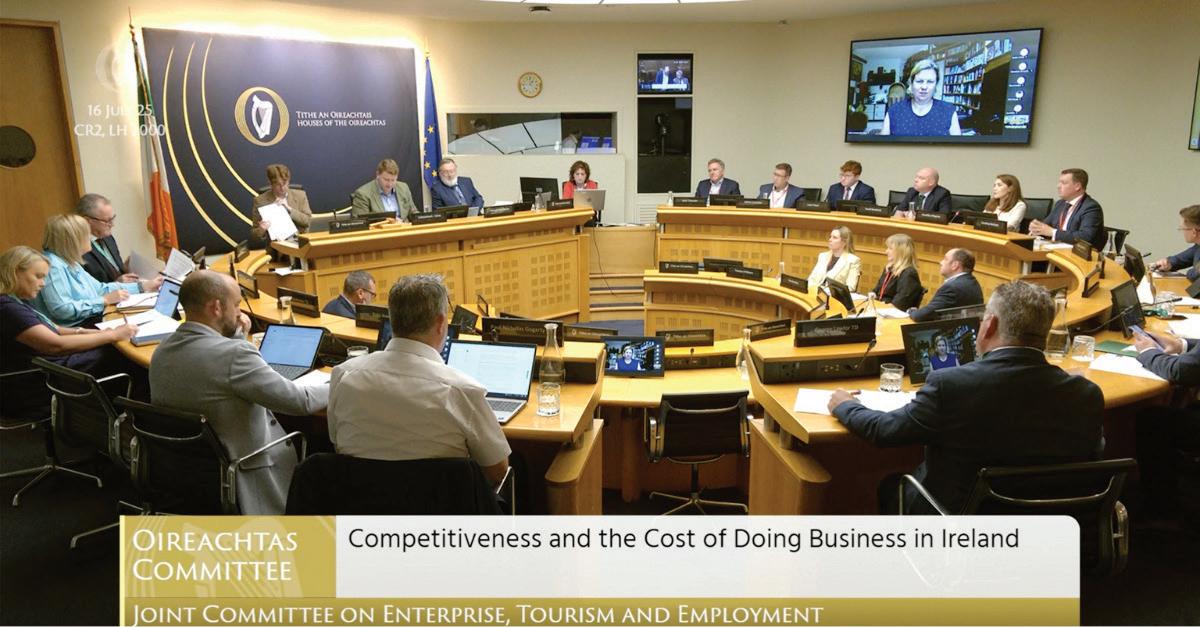
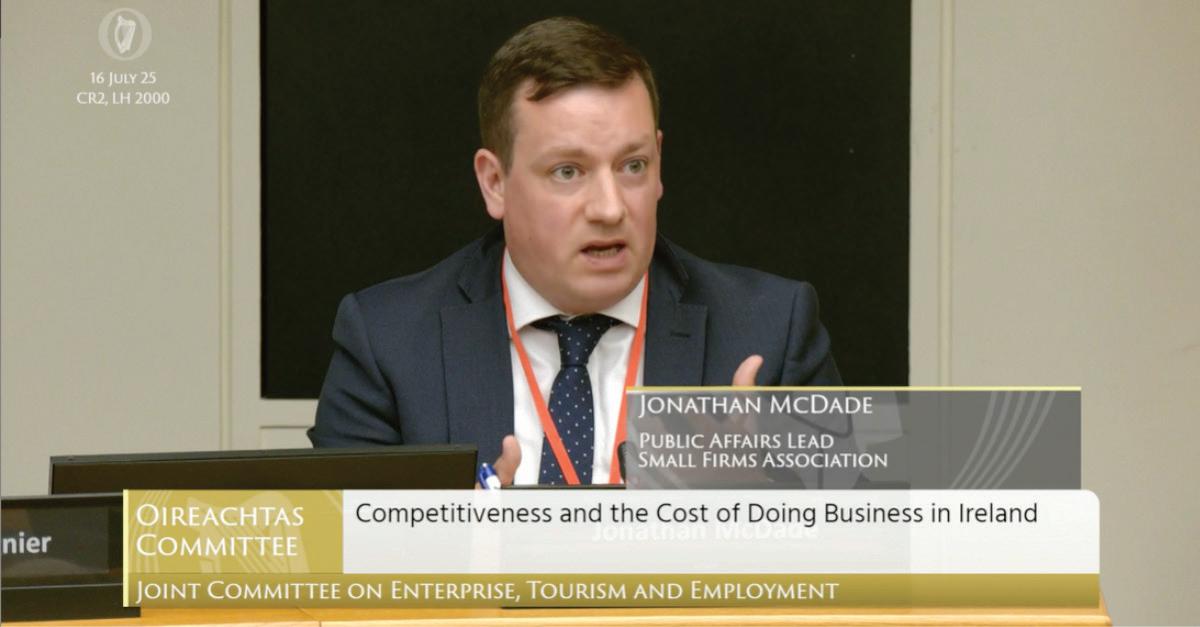

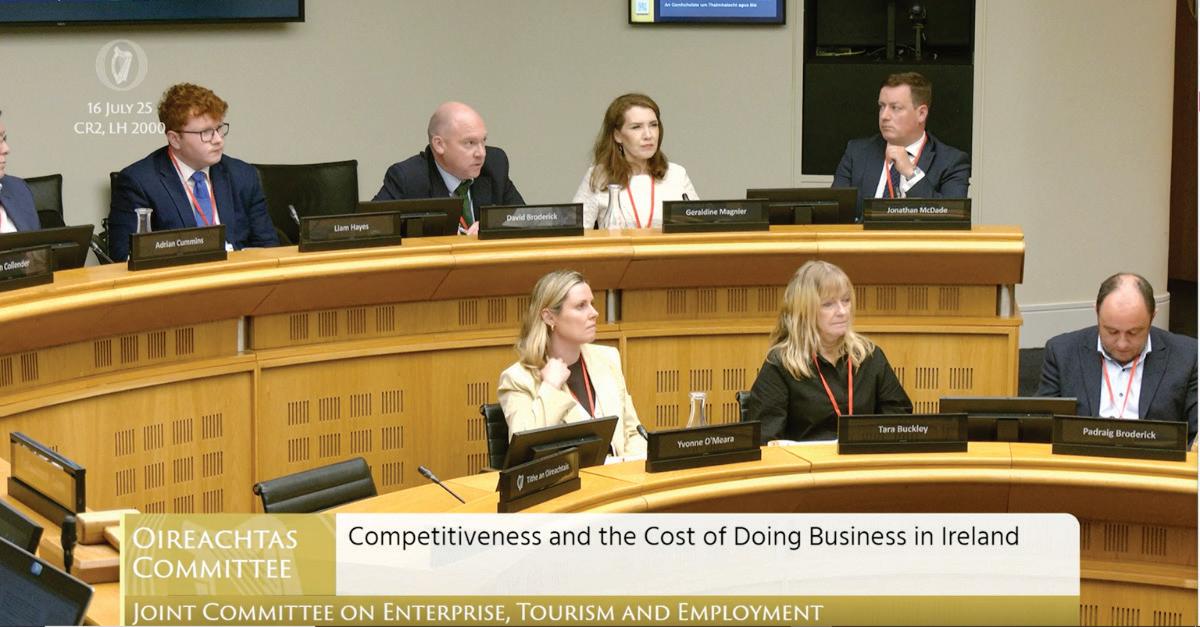
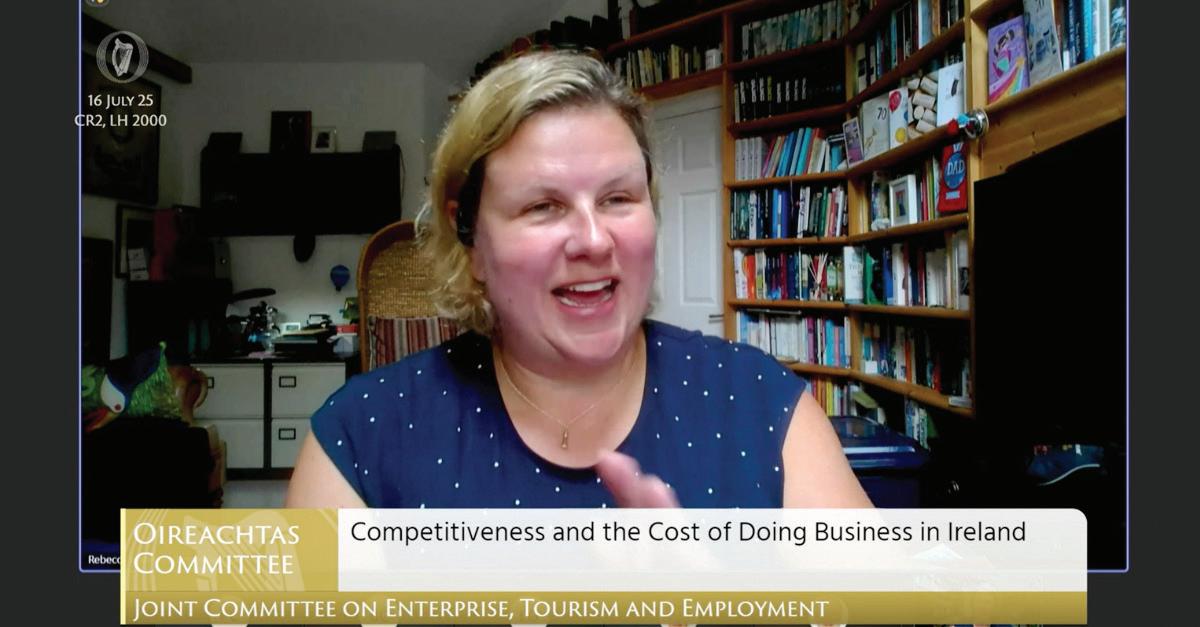
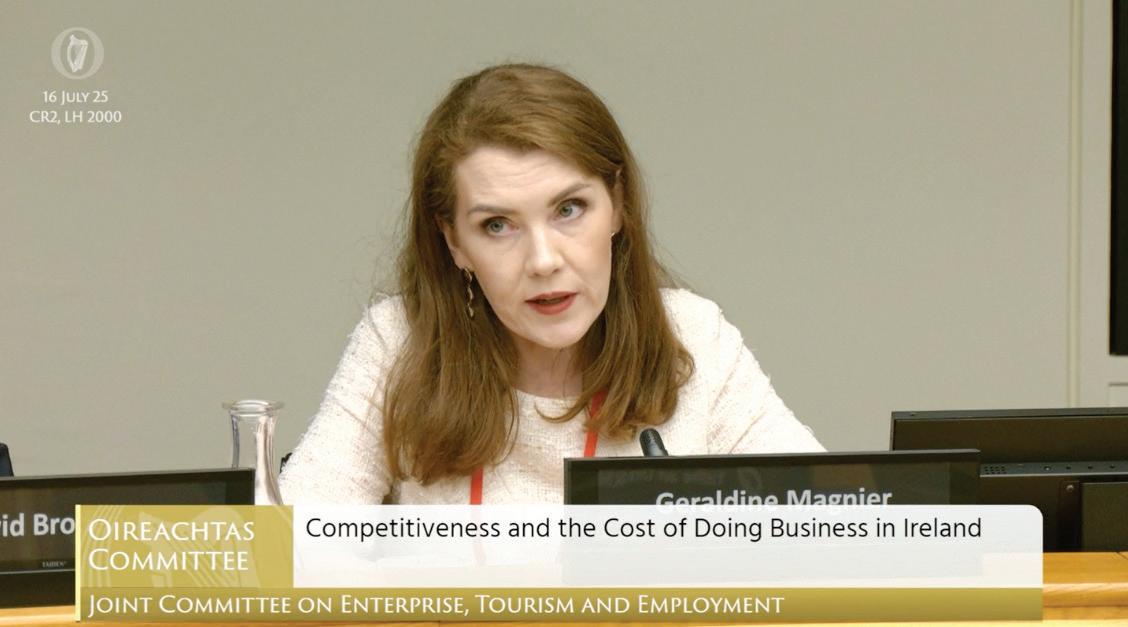
This summer, the Small Firms Association addressed and took questions from members of the Joint Oireachtas Committee on Enterprise, Tourism & Employment
The committee held a session dedicated to rising business costs. The SFA was represented by SFA Chair and Director and Co-Founder of Idiro Analytics, Geraldine Magnier, SFA Council Member and MD of Fishers of Newtownmountkennedy Ltd, Rebecca Harrison, SFA Director David Broderick and SFA Public Affairs Lead Jonathan McDade.
During the session, the SFA highlighted the results of its recent Small Business Survey and raised a range of issues impacting the small business community, most notably rising labour costs, access to finance challenges and public procurement issues.
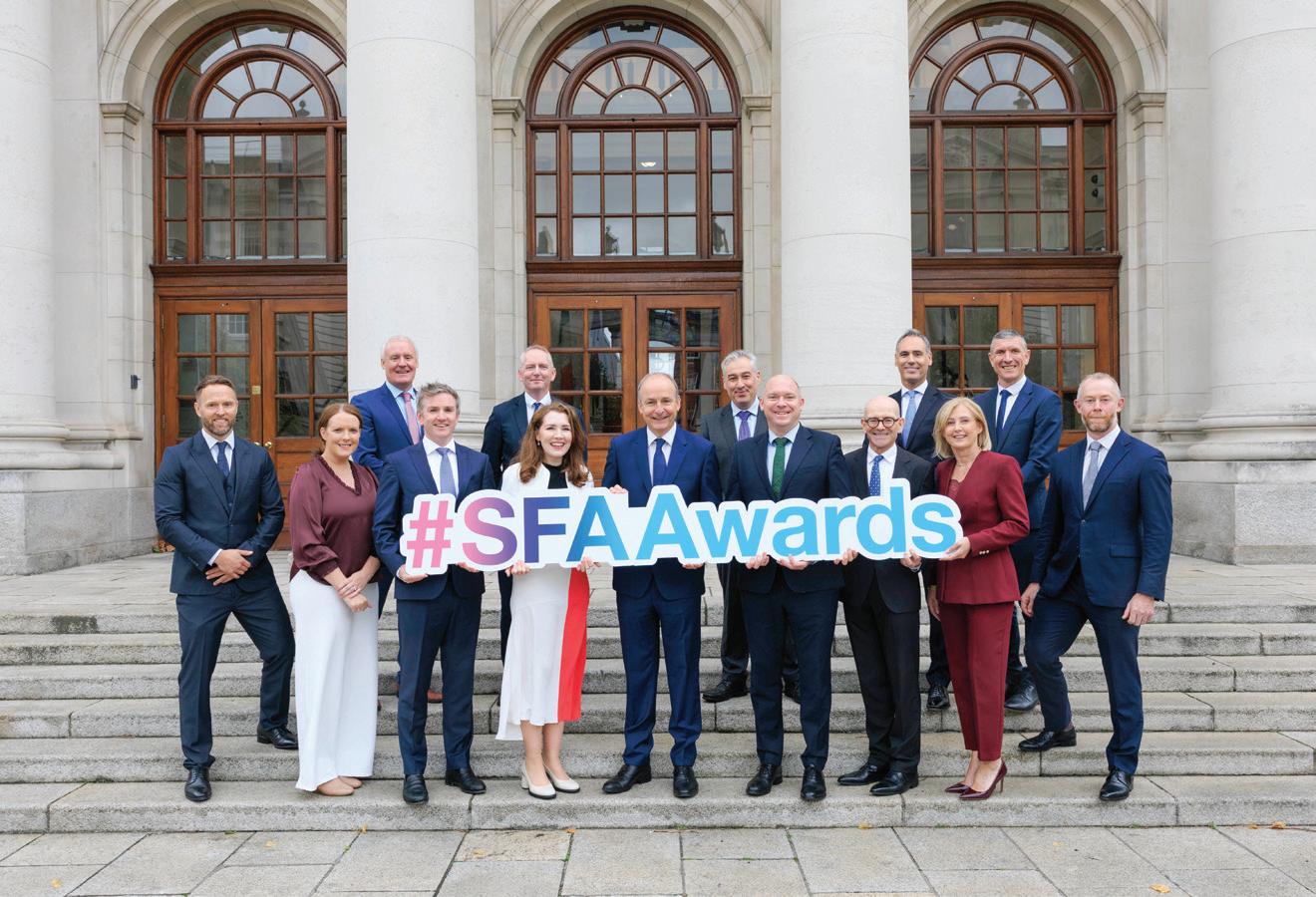
The Small Firms Association (SFA) National Small Business Awards 2026 was officially launched by Awards Patron, An Taoiseach, Micheál Martin. Now in its 22nd year, these awards celebrate the achievements, innovation and excellence of small businesses in Ireland and recognise the vital contribution of the small business community to the Irish economy.
Small firms (employing less than 50 people) have until 24th October 2025 to enter. There is also an option to nominate a business to receive an award. Speaking at the launch, An Taoiseach, Micheál Martin, said: “I am delighted to launch this year’s SFA National Small Business Awards, which recognise the talent and ambition of small businesses across Ireland. Small businesses are at the heart of our economy and our communities. They embody the innovation, hard work and resilience that have always driven Ireland forward.”
The Awards are free to enter and the prize package for all finalists is valued at €50,000. This includes a strategic management masterclass weekend, participation in the SFA Business MentorsWork Programme as well as in the SFA Business Connect event, where they will be able to showcase their products and services to an audience of over 300 attendees. It also includes broad-ranging national and local media coverage and each finalist company will feature in a special supplement in the Irish Independent on the day of the Gala Presentation of Prizes which takes place in the RDS Concert Hall on Thursday, 5th March 2026 when the category winners and overall winner will be announced. Finalists also receive three complementary tickets to this ceremony. Category winners will be presented with a trophy and free membership of the Small Firms Association for 2026.
In addition, the five best “Emerging New Businesses” – companies who are less than two years in existence – supported by Microfinance Ireland, will be selected. These are companies that have the potential to grow and have the ability to be an SFA National Small Business Award winner in the future. Entrants may enter the category of their choice and have the option to enter more than one category, but must complete a separate entry form for each one they choose.
THE SFA NATIONAL SMALL BUSINESS AWARDS ARE OPEN TO ALL COMPANIES IN IRELAND WITH UP TO 50 EMPLOYEES AND THE CATEGORIES ARE:
MANUFACTURING supported by PTSB
FOOD AND DRINK supported by Bord Bia SERVICES supported by Sage
OUTSTANDING SMALL BUSINESS: UP TO FIVE EMPLOYEES supported by Elavon
INNOVATION supported by National Standards Authority Ireland (NSAI)
SUSTAINABILITY supported by Strategic Banking Corporation Ireland (SBCI)
WORKPLACE WELLBEING supported by DeCare
EXPORTER OF THE YEAR supported by Enterprise Ireland
FAMILY BUSINESS supported by Interpath
Skillnet Ireland is supporting the management training for the programme
Entries to the awards will be accepted until 5pm on Friday 25 October 2025 and entry forms are available online at www.sfaawards.ie










ADVICE?






IT’S ALL ABOUT CASH FLOW
“The number one piece of advice I would give to a small business is keep an eye on cash flow. That will ultimately determine whether your business is profitable or not. Make sure you meet your creditor’s payment terms and when that’s not possible, keep the lines of communication open. If you're able to consistently pay people on time, that's a good sign. If it’s getting tighter and tighter, that's signalling profit margin erosion. If that’s happening, talk to your accountant or solicitor – reach out to someone early on. If you leave it too late, you may miss a window of opportunity to restructure.”









WHILE INSOLVENCY NUMBERS REMAIN BROADLY UNCHANGED FROM 2024, COMPANY-LED CLOSURES ARE DOWN AND RESTRUCTURING IS ON THE UP


Recent ndings from Deloitte re ect a relatively unchanged insolvency landscape, however certain sectors like hospitality and construction have experienced higher levels of insolvencies so far this year. e research shows that the number of insolvencies in the rst half of 2025 dropped slightly compared to this time last year, with 98.5% of insolvencies a ecting SMEs. In H1 2025, there were 407 insolvencies, down by 1% on H1 2024 (412). e balance of insolvencies across Q1 and Q2 was spread evenly, with 206 in Q1 and 201 in Q2.


Deloitte also found that Creditors’ Voluntary Liquidation (CVL), more commonly known as company-led closures, has decreased by 18% (323 in H1 2024 vs 266 in H1 2025), while court liquidations have more than doubled (19 vs 42). Revenue was the petitioner for 27 out of 42 court liquidations (64%) in H1 2025 compared to six out of 19 (32%) cases in H1 2024.






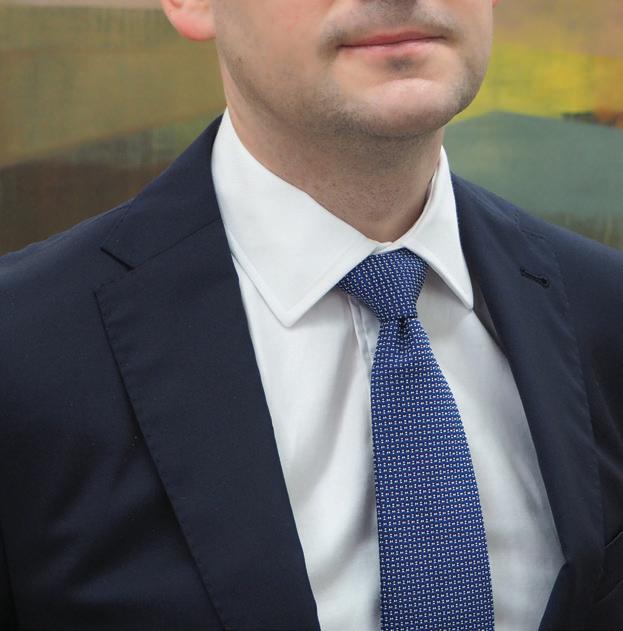


James Anderson, Turnaround & Restructuring Partner, Deloitte Ireland
14 and although this is double the number compared to this time last year, the uptake of SCARP is still relatively low since its introduction four years ago.” Since it was introduced in December 2021, there have been 99 SCARP appointments in total. at represents just 4% of all insolvencies in that time period. “SCARP was introduced to help small and micro companies restructure their debts, avoid liquidation and ensure creditors get a better outcome than they would under a liquidation. Unlike examinership, which can be a costly process, SCARP gives small rms a court-free, a ordable restructuring solution.” So why the low take-up? “In the SCARP process, Revenue or other State bodies have the option to opt out if they identify a poor history of tax compliance. SCARP is also only available to viable businesses that are
“THE ALTERNATIVE LENDING SPACE HAS SIGNIFICANTLY INCREASED IN IRELAND. THAT WAS A PARTICULARLY STRIKING FINDING.”
is increase in court liquidations can, says Turnaround & Restructuring Partner at Deloitte Ireland, James Anderson, be attributed to companies being unable to meet phased payment agreements with Revenue as part of the Covid debt warehousing programme. “We have found Revenue to be very helpful when it comes to companies that can’t meet their phased payment agreements. Maybe a company initially agreed a ve or six year plan, but found it to be too ambitious. Once that company is open to cooperating, we o en nd that Revenue is happy to renegotiate their agreements.”
Receivership appointments were also up by 37% (52 in H1 2024 vs 71 in H1 2025), with the majority initiated by alternative lenders. “Since the economic crash, the alternative lending space has signi cantly increased in Ireland. at was a particularly striking nding from our research. Something else that jumped out at us was the number of Small Company Administrative Rescue Processes (SCARP). In H1 2025 there were
facing temporary nancial di culties, but are still considered fundamentally viable.” Some legal commentators have described the SCARP process as cumbersome and have called for more exibility around the compliance and administration of the scheme. “I think if you’re talking to the right people and getting proper advice, SCARP can be a relatively straightforward process. It’s something more small rms should consider if they’re looking at entering a restructuring scheme – it doesn’t have the same barriers to entry around cost that examinership does.”
In H1 2025, the hospitality sector had 66 insolvencies. While this is 14% less than in H1 2024 (77), the sector continues to face a high level of insolvencies, with the highest number of any industry when services are split into subsectors. Restaurants are disproportionately impacted due to legacy debt issues, di culty attracting and retaining sta and the fact that energy in Ireland is the most expensive in Europe. “Small businesses, especially in the
hospitality sector, are facing cost pressures around energy and sta costs. ere are also additional costs coming down the line in terms of auto-enrolments. All these costs impact pro t margins; they can’t be passed onto the consumer.” e Government has pledged to reinstate the VAT rate of 9% for the hospitality sector in the upcoming Budget. Recent reports have suggested however that this may not be followed through. Even if it is reinstated, a lower VAT rate is unlikely to result in a change in insolvency rates. “ e other challenges mentioned above, such as energy costs and a lack of skilled sta , would still remain.”
Overall these ndings are positive, says James, but small businesses should exercise caution going forward. “Even though insolvency numbers year to date are similar to 2024 levels, with ongoing geopolitical and trade tension, there are signi cant headwinds to consider for the rest of the year.”


















































BETTER BUSINESS CHATS TO THREE FAMILY-OWNED FIRMS ABOUT SUCCESSION PLANS, GROWTH AND UPHOLDING FAMILY VALUES




















are the backbone of
Standún, a family-run clothing and gift department store in Spiddal, was founded in 1946 by May and Máirtín Standún. Back then, the pair were selling groceries from a room in their two-bedroom bungalow. Over the years, they extended the business to include petrol pumps and a butcher. It was very much a hub for the local population in Connemara, “it had a bit of everything”, says Clíona Standún, Managing Director. “People would buy their suit for going to America or they would buy their groceries or shoes or even cement. It also served as the local undertaker. In the 1950’s, my grandparents noticed an increase in tourism to Connemara so they began stocking more items like sweaters and locally made goods. At the time, Fáilte Ireland (then Bord Fáilte) were keen to increase exports from Ireland and so with their support, my grandparents were able to set up a finishing factory for Aran Sweaters. They became the first to export the Aran Sweater to the US.”
In 1972 Donal, May and Máirtín’s son, took over the business, eventually changing direction to focus solely on tourism. Clíona and her sister Laragh, Donal’s daughters, took over Standún in 2010. The Irish economy was in severe decline, with tourist numbers hitting a 12-year low. It was time for another change in direction. “We decided to try and build up a business that would reach both tourists and local people. We could see that a lot of Irish people were visiting Connemara during the summer. In order to grow, we needed to target that domestic market while still retaining our tourist business, so we started stocking brands that would suit Irish people. It took quite a long time to change the perception that people had of the business.”
Today, the business is 60% Irish and 40% tourist driven. “It’s a real comfort not to have all our eggs in one basket. We often have that conversation with our dad, where would we be if we were solely reliant on tourist business?”
Clíona and Laragh are both Managing Directors in the business. Laragh focuses on marketing and merchandising, while Clíona is responsible for finance and HR. There’s pressure to ensure the business continues to thrive for the next generation, says Clíona. “We’re the third generation and sometimes I do feel like I’m just holding the torch for the next generation. I don’t want to be the one that runs it into the ground! There are lots of advantages to running

So many of these small firms are family-run enterprises handed down through the generations, companies that have long demonstrated a unique ability to withstand economic turbulence. Family-run businesses play a vital role in Ireland’s economy – research shows that around 70% of businesses in Ireland are family-owned, contributing €19 billion to the Exchequer. Three companies told us what it’s like to be part of a well-known Irish family business and how they plan to grow in an increasingly competitive business environment.
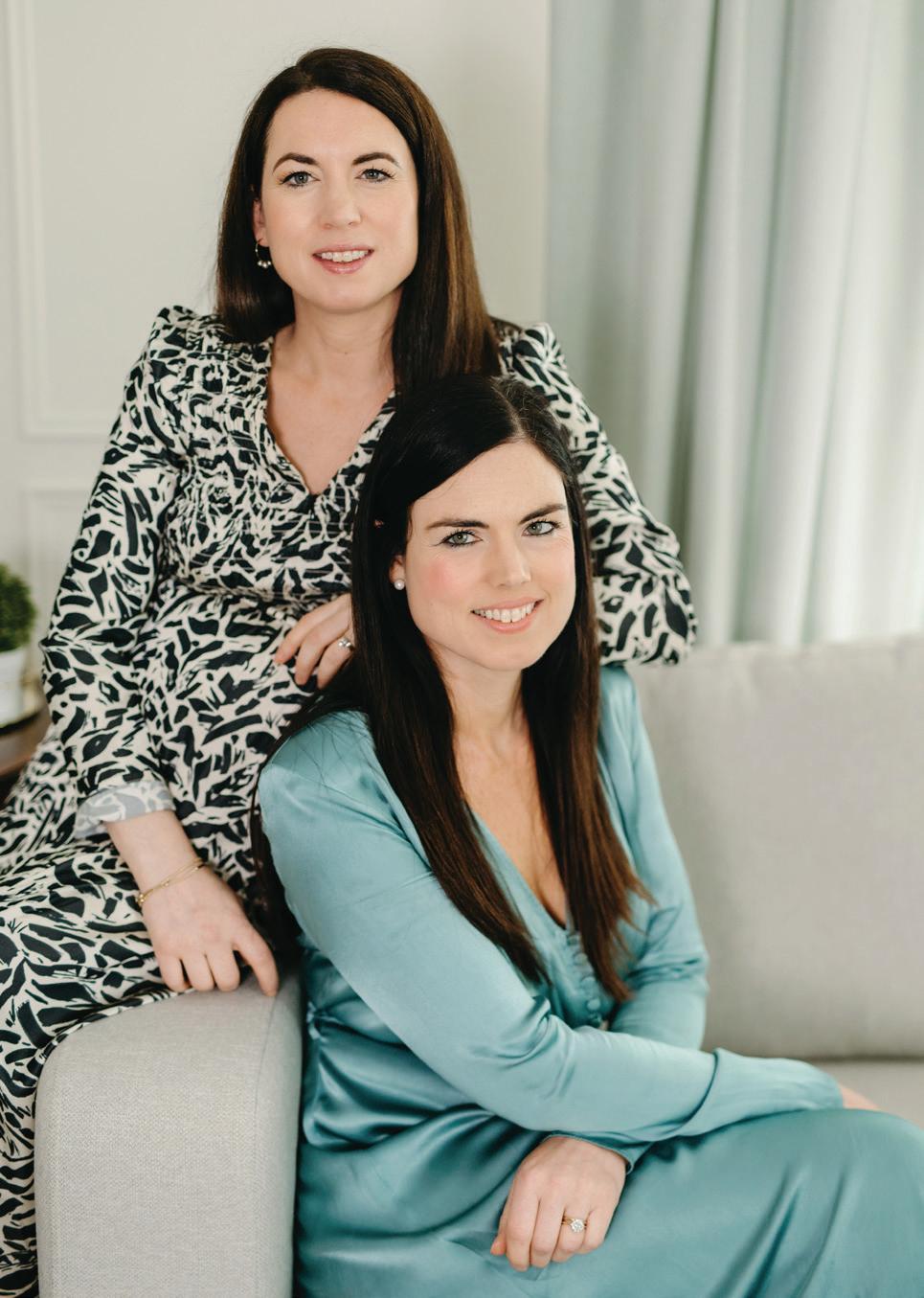
a family business – it’s more flexible and it feels like we’re a team. Many of our employees have been with us a long time.”
In 2018, Standún opened a second shop in Oughterard. Plans are in place to open a third outlet in Birr, Co Offaly. “The third shop will help dilute our costs, which are huge. We think Birr is a great location for Standún – it’s got the tourist element and it’s also got lots of villages around it that would shop in the town every week. It’s an exciting time for us.”
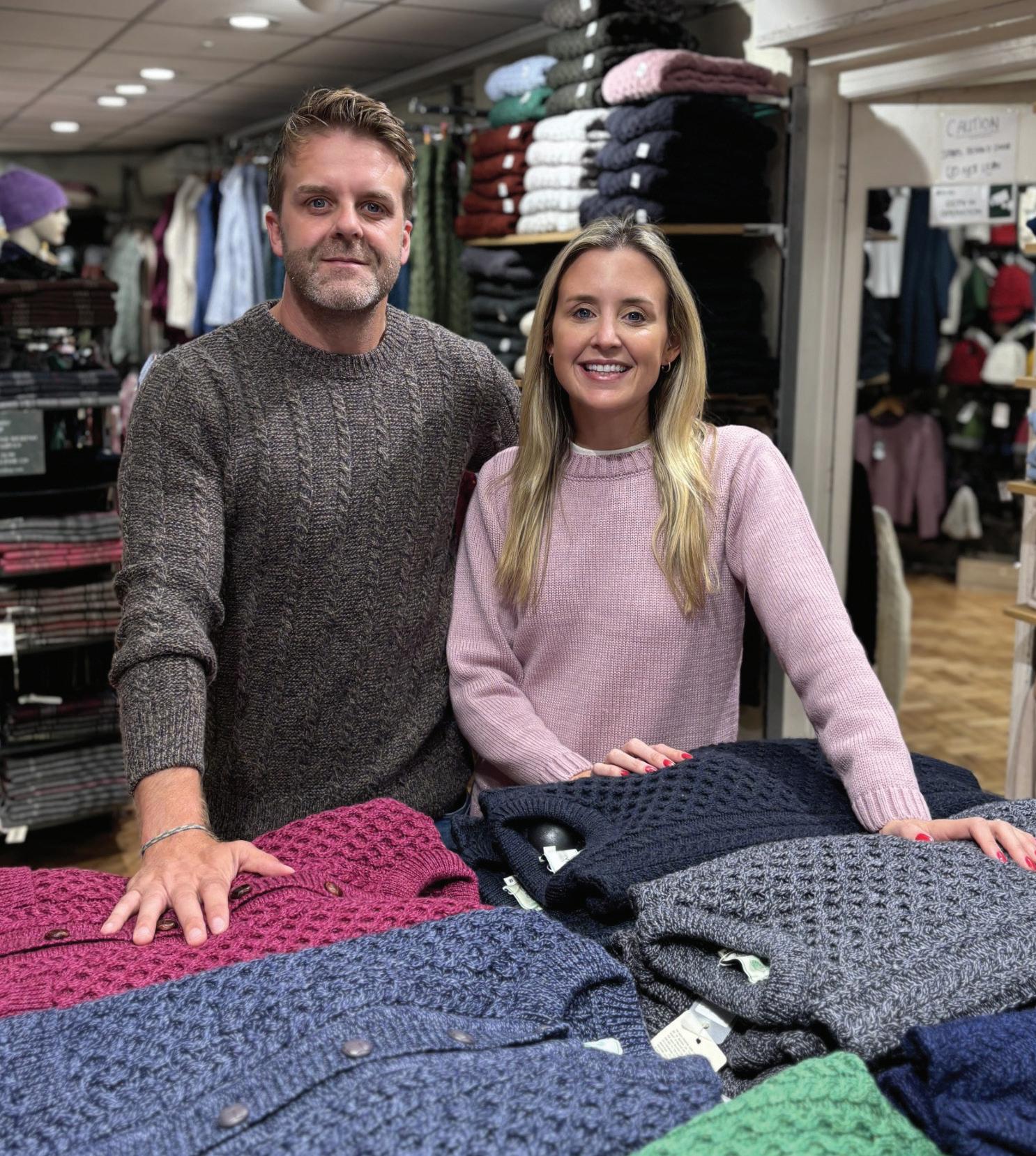
When Colin Farrell appeared on screen wearing an Aran jumper in The Banshees of Inisherin, sales of the iconic sweater shot up. “It was a marketing dream for us, to see this huge movie star wearing an authentic Aran jumper. Other A-listers have also boosted the jumper’s popularity – Taylor Swift wore one when she was promoting an album a few years back and Chris Evans wore one in Knives Out. It’s amazing the effect that this kind of exposure can have on the business,” said Paul Byrne, Managing Director at The Sweater Shop. Set up in 1986 by Paul’s father Dom, The Sweater Shop is known for its high quality Irish Aran knitwear. It’s located on Dublin’s Nassau Street and over the years, has expanded to additional outlets in Kilkenny and Galway city. Knitwear is sourced from the likes of West End Knitwear in Kildare, Aran Woollen Mills in Westport and IrelandsEye in Dublin. “We’ve built great relationships with our suppliers over the years. They set up around the same time as us, so we’ve grown up together in a way.” Rising costs are a challenge. “Our suppliers do their best to keep their prices at a certain level, but we are noticing a rise. We understand it though; they’ve got very high factory costs to contend with. With costs, the goalposts change every year. You look back on figures from the previous year and you’re trying to beat them by 25% to nearly stay the same
“MY DAD STILL WORKS IN THE BUSINESS BUT INTENDS TO TAKE A STEP BACK. MYSELF AND MY SISTER GOT ON BOARD TO DRIVE IT FORWARD. WITH THE WEBSITE AND OUR OTHER PLANS FOR THE BUSINESS, THAT’S WHAT WE’RE DOING.”
because costs are rising so much. That’s a big concern for us.”
The Sweater Shop is very much a family affair. Paul’s sister Laura works in the business, along with Paul’s wife and sister-in-law. Before joining the family business, he worked in finance in London for a few years. “The plan was always to go off and do something else that I was interested in. My dad still works in the business, but he intends to take a step back. Myself and my sister got on board to drive it forward. With the website and our other plans for the business, that’s what we’re doing.”
With so many family members involved, is it ever a case of too many cooks in the kitchen? “We certainly all have ideas around the table at Sunday lunch. We all accept that everyone has their own opinion; we’re lucky in that we all get on very well. There’s never any power struggle or trying to outdo each other. We all have the same goal.”
Diversification into new markets is a priority going forward, says Paul. “When we launched the website, sales were almost solely from the US. Now we have a huge customer base in central Europe and Australia –Aran jumpers are unbelievably popular Down Under. We’re also getting a lot of traction in new markets like Japan at the moment.”
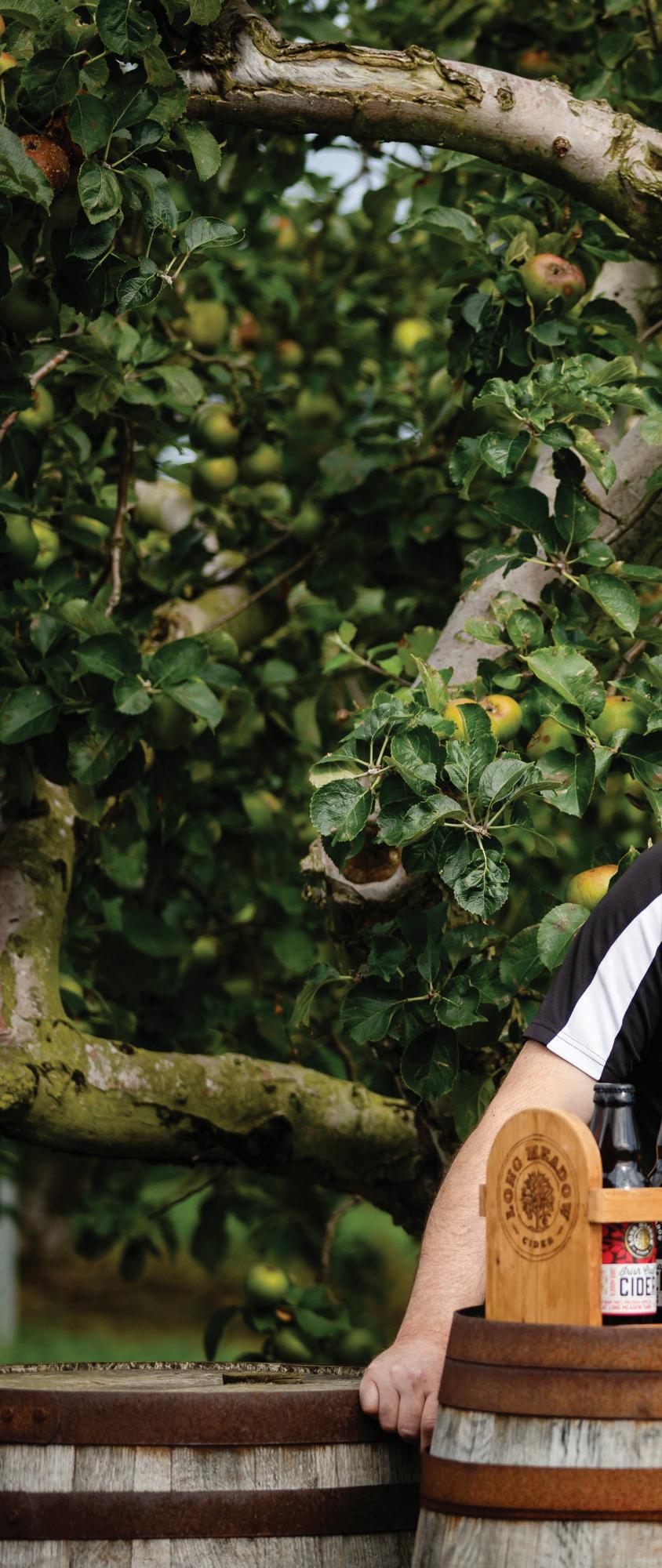
For the team at Long Meadow Cider in Portadown, September is a busy month. Harvesting season, which can last anywhere between six to 10 weeks, depending on the weather, takes place, with production ramping up to ensure supply for the rest of the year. “We’re about to launch into Tesco in Northern Ireland and in the Republic. That’s a massive boost to the business and something that was a long time in the works. Our products are also available in Sainsbury’s, Marks & Spencer and in various hotels, bars and restaurants,” says Alanna McKeever, Head of Sales and Tourism. Long Meadow Cider is a third generation business, set up over
60 years ago. Alanna’s grandfather planted the first trees at Long Meadow Farm and in 2014, her dad decided to drive the business in another direction – producing their own brand of craft cider. “We produce six different ciders and we also have a range of apple juices and apple cider vinegar. Tourism is a massive part of the business, we get visitors from far and wide. Last year, over 6,000 American visitors visited the farm.”
It was always Alanna’s intention to join the family business. “I hounded mum and dad for years for jobs on the farm. After school I travelled and got experience elsewhere, but I was never content. I
“WE’VE HAD CORPORATES HIRING THE BARN FOR TEAM-BUILDING DAYS. WE’VE ALSO HAD WEDDINGS, BABY SHOWERS, BIRTHDAYS, HEN PARTIES, YOU NAME IT. THAT’S OUR NICHE, OUR UNIQUE SELLING POINT AND A BIG PART OF OUR SUCCESS.”
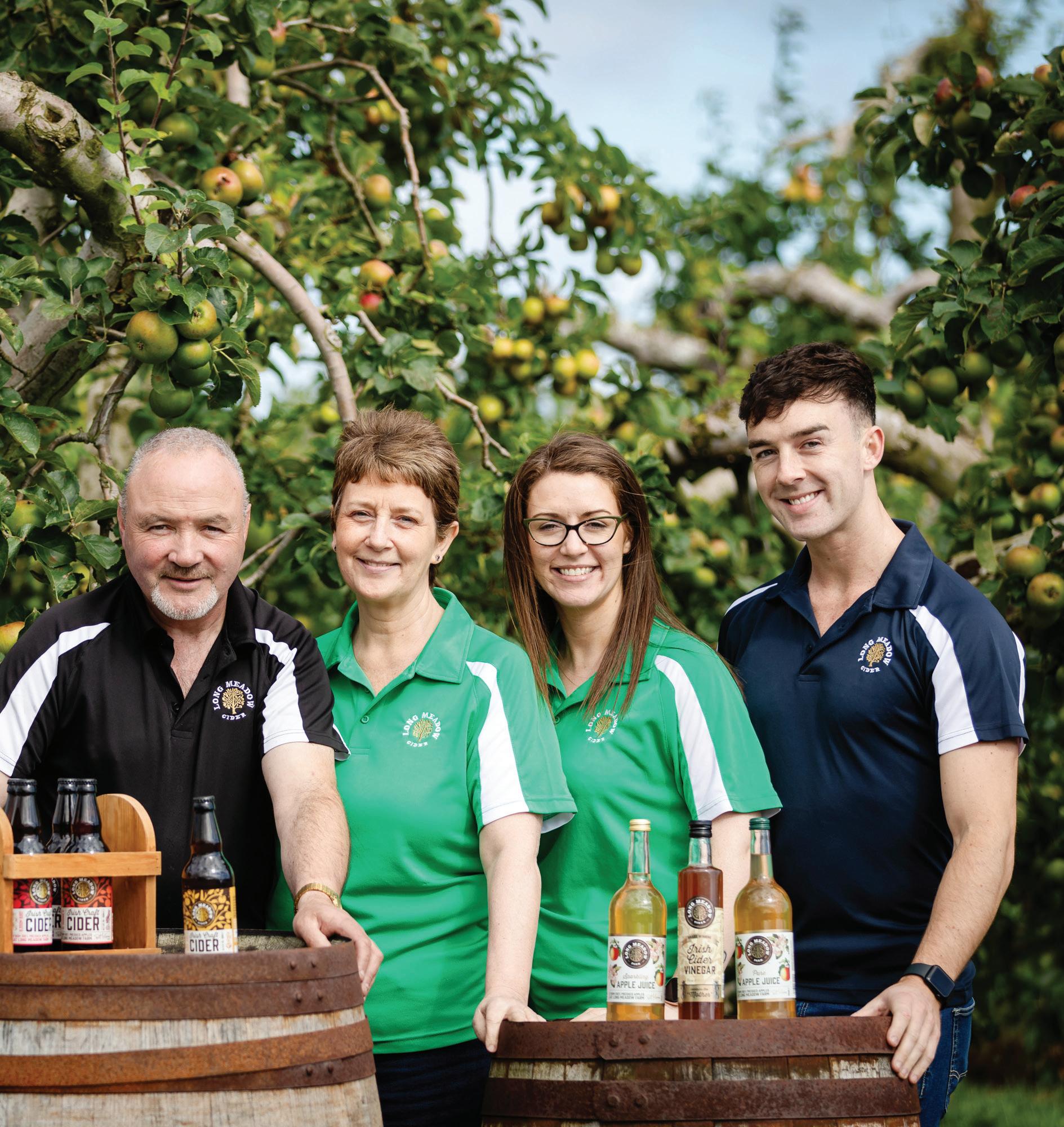
actually live on the farm with my family now –it’s a great lifestyle for the kids.” Alanna runs the business with her brother, Peter. With an estimated 5,000 acres of apple orchards in Co Armagh, it’s a competitive industry. “At the same time, there’s room for everyone. Every farm has its own niche and direction for the purpose of its fruit. Even now at harvest, you really feel the support from other growers because everybody knows how hard it is.”
In recent years, the events side of the business has boosted revenue. The farm’s main venue – Bramley Barn – is available for private hire. “We’ve had corporates hiring the barn for team-building days. We’ve also had weddings, baby showers, birthdays, hen parties, you name it. That’s our niche, our unique selling point and a big part of our success.”
It’s never too early to talk about succession planning in a family business, says Alanna. “It’s a conversation that you must have early on because no one knows what the next day will bring. Mum and Dad have been very good in helping pave the way for myself and Peter. That plan has been ongoing from day one – really trying to put the right principles in place so the business can continue to grow and thrive, regardless of what happens.”
Alongside the launch into Tesco, there are exciting plans afoot on the farm. “We’ve got a couple of initiatives that we’ll be launching in early 2026 and we’ll be starting to shout about them in the next month or two. We’re also investing in more state-ofthe-art equipment to make our production facilities run more smoothly.”

Steve Blanche
Chief Technical Officer, Ergo
Irish SME leaders should foster a culture of cybersecurity to safeguard their businesses, employees and customers.
Cybercriminals target small enterprises so empower your teams with awareness, invest in training and adopt a Zero-Trust approach. Ground decisions in robust data protection and trust to mitigate risk and build resilience. This allows innovation to thrive and businesses to grow and scale safely.

2
Sinead O’Riordan Head of Partnerships, Skillnet Innovation Exchange
Pathway to Innovate is a new initiative to support SMEs across all sectors to embed innovation and entrepreneurial practices into their organisation, by identifying relevant supports and delivering tangible upskilling programmes. Our regional clinics are designed to equip businesses with actionable insights that transform ambition into measurable growth.

Patrick Brennan Vice President of Health & Wellbeing, NFP Ireland
Supporting mental health and work-life balance is a simple but powerful way to retain and motivate staff. Offering counselling services, flexible working or stress management initiatives shows employees that their wellbeing matters. When people feel genuinely supported, loyalty deepens, engagement rises and you retain a committed, resilient team that will grow with your business.
I’ve been absolutely terrified every moment of my life and I’ve never let it keep me from a single thing that I wanted to do.

Georgia
O’Keeffe, Artist 1887-1986


Amy O’Sullivan National President, Network Ireland & Founder of AOS Consulting
Leverage your network. The people you know – customers, peers, suppliers, mentors – are often your greatest asset. Share your goals, ask for introductions and be generous in return. Opportunities, advice and partnerships flow through relationships, and small businesses grow faster when they tap into the trust and expertise already around them.
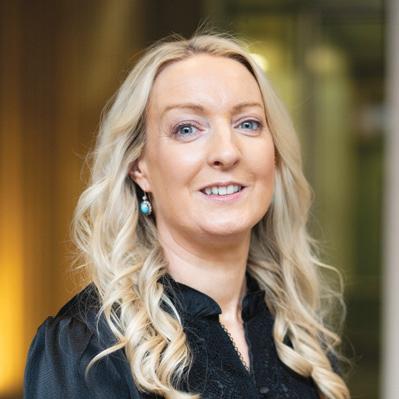
Áine McSweeney Of Counsel, HOMS Assist
Hard work can be very rewarding. No doubt there will be challenges to overcome, but persevere and listen to your clients. Take great pride in your work and believe you can do it. Market awareness and a plan is very important and enjoy lasting success.

Gareth Brennan Partner, Brennan Furlong Architects
Value your knowledge. Years in your industry build deep expertise, often shared in countless conversations with peers. It’s easy to overlook how much you’ve absorbed – but your clients haven’t. What you know isn’t common knowledge; it’s a powerful asset. Recognise its worth, lean into it and let it shape your business. Your experience is not just useful – it’s valuable.
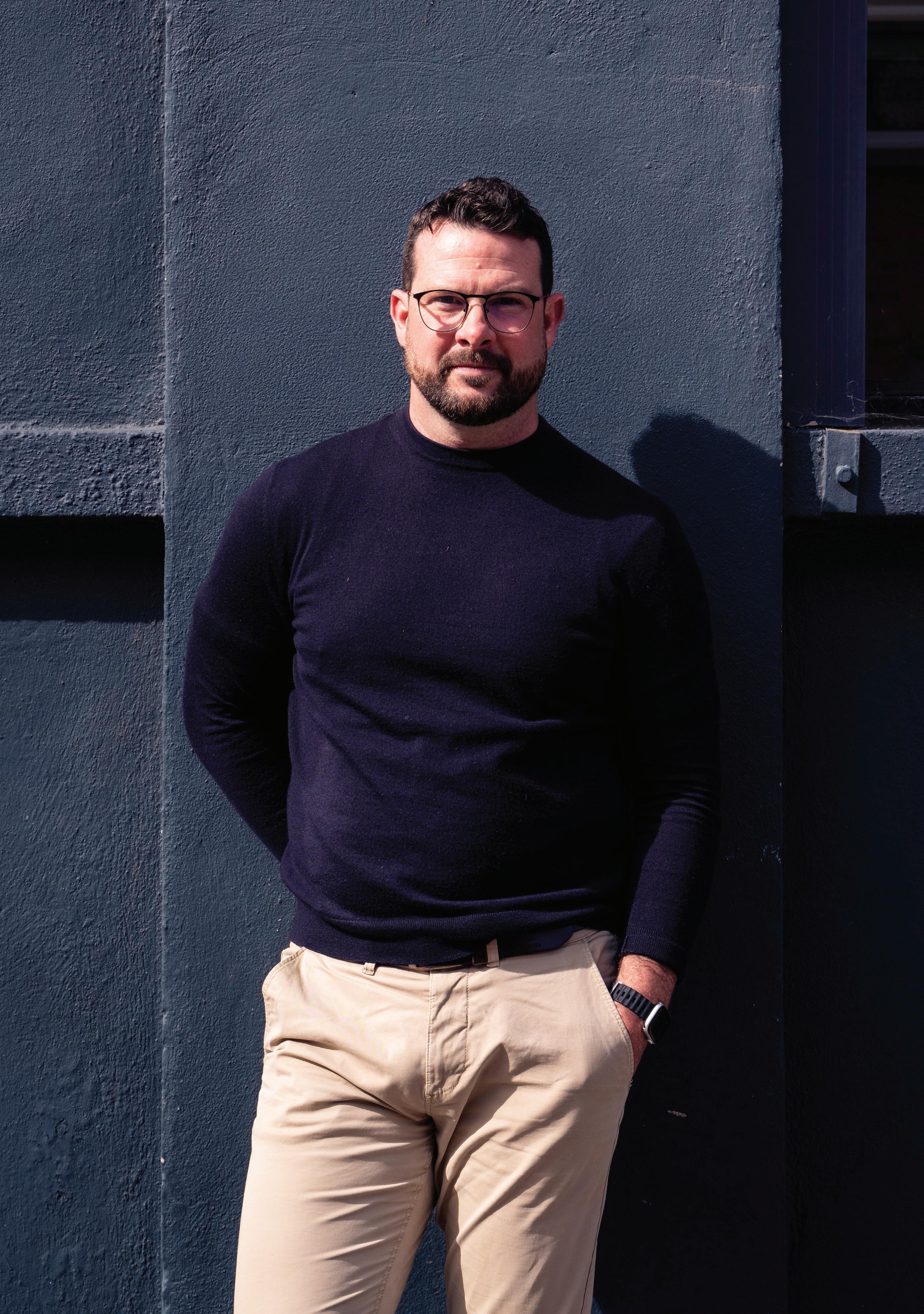
There’s a phrase that’s used by the GRID Finance teams across their offices in Limerick, Dublin and Portugal. It’s a phrase that sums up the company’s philosophy and the values it espouses. It’s even framed on their walls. “Strong Business, Stronger Community” reflects GRID Finance’s mission – to support businesses with flexible funding options and equip them with the knowledge they need to grow and thrive.
GRID Finance was established in 2013 by Derek Foley Butler. From the outset, the aim was to create a unique funding model in the Irish market, one that would make a tangible difference to the small business community and the challenges it faces. The result was a modern financial partner that combines innovative funding with a deep understanding of the challenges facing small and medium businesses. More than 10 years later, GRID Finance is very firmly on an upward trajectory – revenues are expected to exceed €50 million this year, with that figure expected to increase in the coming years.
Thousands of businesses across Ireland avail of funding from GRID Finance.
“TAKING SMALL, VARIABLE AMOUNTS ON A DAILY BASIS FROM CASH FLOW IS A REALLY ATTRACTIVE PROPOSITION TO CLIENTS. THEY CAN PAY EXTRA IN MORE PROFITABLE WEEKS AND LESS IN BAD WEEKS, SO IT’S NOT AS IMPACTFUL.”
Those businesses are across a wide span of industries, from hospitality and retail to professional services and healthcare. Core products include merchant cash advance, a short-term loan for firms dealing in card business, taken out against future sales and repaid on a daily basis as a percent of sales. GRID Finance tracks sales and takes small, continuous payments until the loan has been repaid. It’s a model that encourages flexibility, says CEO Eoin Christian. “We don’t expect our clients to have a specific amount of money in their bank account at the end of the month which we then deduct. Taking small, variable amounts on a daily basis from cash flow is a really attractive proposition to clients. They can pay extra in more profitable weeks and pay less in bad weeks, so it’s not as impactful.” It’s a great
option for businesses that experience peaks and troughs throughout the year. “Take retail for example. Many businesses are gearing up for Christmas, they’re stocking up now to ensure they’re ready for that busy period. We recently had a client who was ordering bucketloads of raisins for the Christmas puddings they were about to make for sale in supermarkets. The price of raisins has gone up, as has the likes of chocolate and coffee. Businesses like that have huge outgoings at this time of year, with a rise in income at the end of the year. We get that – we understand the nuances of the market our customers operate in.”
Helping small businesses navigate those peaks and troughs is what GRID Finance does best. It’s as much about understanding when the funding is needed and what
it’s required for as it is about providing businesses with some much-needed breathing space. “We give them peace of mind so they can actually sleep at night. They know we have everything in hand.”
Another core product is specifically for B2B businesses that invoice their customers and operate on payment terms. Like the merchant cash advance funding model, it’s a flexible option that helps businesses bridge cash flow gaps and take advantage of new opportunities. Just this year, GRID Finance expanded its offering to include a third funding strand in the asset finance and leasing space. “We’re excited to add that capability to our overall offering. It really came from our clients; we’re very client-led, we listen to them and they were asking us to provide more facilities. Longer term, we plan on expanding our suite of products further to elevate our overall offering in the market.”
“Insights” is GRID Finance’s complementary cash flow advisory tool, giving customers an opportunity to get the most out of their cash flow analysis. It’s a free service that’s proved popular with clients. “It interprets data from cash flow and identifies where the pain points are. It helps clients forecast and plan, which is such a difficult thing to do in the day-to-day. Most of our clients, if not all, have availed of it. We’re partnering with ISME and SFA to offer the service to their members too.”
Financial understanding isn’t where it should be, says Eoin. “There’s perhaps a lack of education there. Small and medium businesses are so understandably preoccupied with the day to day that financial education takes a back seat. Anything we can do to help our business owners with planning, forecasting or managing their cash flow, we’re happy to do it. It benefits the business community as a whole.”
GRID Foundation, the not-for-profit side of the business, is actively leading that discussion around building a better financial system in Ireland. Events like the National Fintech Awards and the Fintech Summit, organised by the GRID Foundation, give start-ups and innovators in the fintech sector the chance to get their voices heard. “GRID Foundation was established by our founder, Derek Foley Butler. It’s based on his mantra of ‘doing well and doing good’. With GRID Finance performing so well, that means we can really give back to the Foundation.”

CASHFLOW DISCIPLINE
It’s key to everything. Understanding where your money is coming from and what it’s going out against is so important. Building strong relationships with the partners you rely on – your funders, your suppliers, your advisors and your customers – is the place to start.
SUSTAINABILITY
Growth is important in every business, but sustainability is what keeps you in business for the longer term. Carefully listen to the wants and needs of your market.
ASKING FOR HELP
Never be afraid to ask for help. There’s a lot of good services and advisors out there. No successful business was built in isolation, so don’t be afraid to put your hand up.



Paul McCarthy
“SMALL AND MEDIUM BUSINESSES ARE SO UNDERSTANDABLY PREOCCUPIED WITH THE DAY TO DAY THAT FINANCIAL EDUCATION TAKES A BACK SEAT.”

GRID Finance is a B Corp certified company. Adhering to the ethics and values of being a B Corp company is, says Eoin, important. “We want to be seen as leaders within this space. We were the first finance company to be B Corp registered in Ireland, so we’re very proud of that.”
Since setting up in 2013, GRID Finance has carved out a specific niche for itself in the financial lending space. Customer service is front and centre – the team takes an active interest in its clients and maintains that interest throughout the client journey. Many customers are family-owned or communitybased businesses, says Eoin. “That’s exactly who we want to support – home-grown, Irish-based companies. These small and medium size businesses are resilient, despite the challenges they face. Energy costs are still high, as are wage costs. We support a sustainable level of minimum wage, but I think the key word there is sustainable. While a minimum wage increase to combat the cost of living crisis is welcome, that increase can become a real challenge for a small business owner/operator as it further erodes their margin. There has to be recognition that an increased minimum wage will have a knock-on effect on all wages.” Margins are tight across the board. For hospitality businesses, the reinstatement of the 9% VAT rate would go some way

towards easing that burden. “We’re advocating for increased Government supports but unfortunately, the same challenges that businesses faced 12 months ago still remain. There’s also been a shift in consumer behaviour, particularly across sectors like retail and hospitality. We’re supporting our customers through these challenges and trying to make the process that bit easier.” Despite the obstacles, Irish businesses remain resilient. Investment is up and there’s a willingness to adapt and innovate. “Resilience is something that Irish businesses have in abundance and that’s been proven several times over, whether during the recession in 2008, Covid or current challenges like supply chain, global unrest, tariffs etc. Our customers continue to find ways to serve their customers.”
GRID Finance aims to become Ireland’s number one non-bank lender. “We don’t see that ambition as an overreach. There are excellent non-bank funders in the market and we would like to be up there alongside them and ultimately compete with them for business, of which there’s plenty in the Irish market.”
The overall message from GRID Finance is, essentially, we’re here to help. “We’re here to provide opportunity and recovery and the backing to help businesses make their own decisions. We understand our clients and we want them to know – they’re not alone. We’re here to support them.”




































JENNIFER MCSHANE SPEAKS TO BUSINESS LEADERS ABOUT EMBEDDING WELLBEING INTO THE DNA OF THEIR COMPANIES, FROM FINANCIAL HEALTH TO FLEXIBLE CULTURE


“Myjourney with Velo started back when we were in a café. I can still remember the day owner, Rob Horgan, told me that we were going to start roasting our own co ee,” says Suzanne Casey, General Manager of VELO Co ee Roasters. “It was amazing to watch customers enjoy the co ee and see the popularity start to kick o in retail.”
“WELLBEING IS ABOUT DEVELOPING A CULTURE AND ENVIRONMENT WHERE PEOPLE CAN GROW AND EVOLVE ALONGSIDE THE BUSINESS.”
When the café sold, she rejoined the roastery in July 2020, this time in e-commerce as online shopping surged during Covid. From there, her role expanded alongside the company’s evolution into retail and wholesale. Becoming GM, she explains, has meant “building strong foundations with our team, staying true to the values of quality and sustainability and helping guide the company through signi cant growth, while keeping the essence of what makes Velo special.”
Wellbeing, for Casey, is not an a erthought but a principle. She talks about balance – time with family, exercise, even the simple act of enjoying a co ee without distraction. At VELO, she says, “wellbeing is about developing a culture and environment where people can grow and evolve alongside the business.” eir B Corp certi cation underscores that commitment to “caring for people, the planet and the product equally.”
“Small businesses can ask a lot of the senior team, who o en wear several hats at once, which is both the challenge and the fun of my role at VELO.” at reality shapes her routines – daily exercise, getting outdoors with her dog Bo and keeping perspective through the product she loves. ere are still plenty of high-pressure days. She admits she has learned the hard way that “you can’t pour from an empty (co ee) cup.” When demands peak, routines keep her grounded – morning workouts, production meetings and a strict to-do list. Just as importantly, teamwork carries them through. “Velo has been built on teamwork and when pressure starts to build, we work together to make sure we get the job done.”
She believes businesses have a duty to both sta and customers. Employees, she stresses, need environments where they feel “valued and trusted – exible working, open communication and opportunities for growth all matter.” Customers, meanwhile, deserve transparency and quality. Co ee, she says, “is how many of us start our day, enjoy time with family and comfort each other… we want every cup of Velo Co ee to have a story to tell.”
Her advice for others is pragmatic. Growth, she argues, “requires organisation, but also exibility and innovation – it isn’t linear.” And sometimes, it’s as simple as giving yourself permission to pause. “If you’re like me, sometimes you need to take a little extra time for that second cup of co ee.”
Managing Director Cora Barnes has built a company where people come rst – not as a slogan, but as a daily practice. She co-founded the business at just 21 with two friends back in 1999, starting out as a small agency for temporary catering sta . Over time, it has grown into a specialist temp agency with a loyal client base, 10 o ce sta , 180 temps and a culture rooted in one belief –“Treat people right and everything else follows.”
For Barnes, wellbeing is both personal and cultural. “For me, wellbeing means awareness and balance. I invest in breathing, pausing, journalling and walking in nature; things that help me reset and act with purpose. I seek counsel and mentoring when I need it. I love long rambles on ancient routes in Ireland and Spain and when my energy is high, I dance or go to live events. is outlook shapes our culture at 3Q – clear communication, checking in with each other and reminding ourselves that work is part of life, not all of it.”

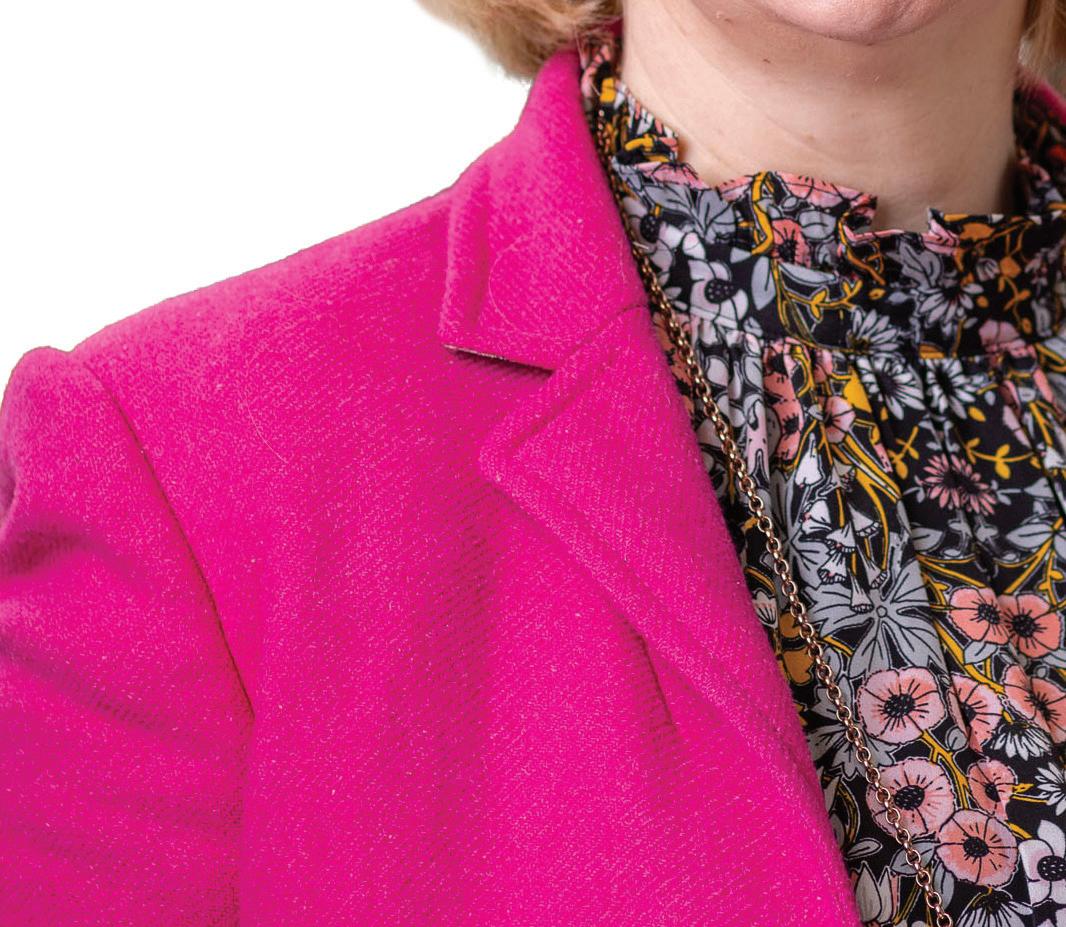

at belief carries through to 3Q’s initiatives. e company has long invested in wellbeing supports such as an Employee Assistance Programme, shared CSR projects and team nights out. is year, it partnered with Gewardz so sta , temps and their families can access digital doctors and mental health professionals. “Respect, fairness and exibility make a huge di erence and it doesn’t need to be complicated – just intentional,” she says.
Barnes also champions recognition outside the business. e company’s #celebratenurses campaign for International Nurses Day asks people to share personal stories of nurses who made a di erence in their lives.
“ is action is a clear reminder that everyone deserves to be seen and hear that appreciation. It helps me focus on gratitude for my people, my team, my temps and my clients. Resilience isn’t about just pushing through – it’s keeping perspective and appreciation at the centre.”









Her personal routines keep her grounded. “Breathing techniques I learned from David Hegarty have been invaluable and conscious and box breathing calm me in challenges. I live by the ‘Golden Rule’ and practice ‘positivity on purpose.’ I move daily, whether walking or a workout, and guard family time. ese aren’t extras, they’re what keep me energised to lead well.”







When pressures rise, she relies on her network. “Perspective comes from remembering our mission – helping people and clients succeed. Support comes from my brilliant team and a trusted right-hand colleague, Suzanne my GM, who shares my passion for 3Q. And self-care means rest and health rst. Burnout helps no one, so I slow down when I need to.”


ection.




Looking back, Barnes has learned the importance of re ection. “Without re ection, you repeat stress instead of growing. Don’t wait for perfect conditions –build habits that sustain you through imperfect ones. Prioritise yourself as much as your business – rest, perspective and optimism are fuel, not indulgence.”



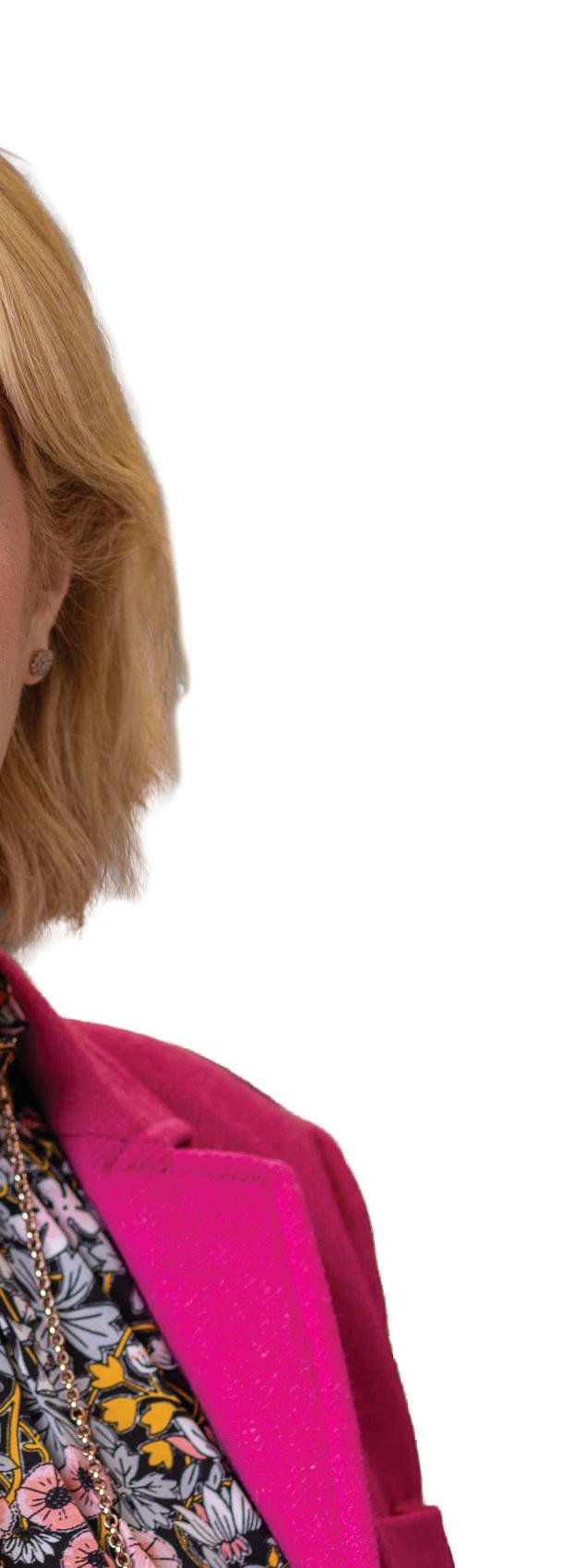
Her message to fellow entrepreneurs is clear –“Optimism isn’t u y. It’s a discipline. Choosing to believe in people and possibility takes daily practice, but it builds stronger businesses and better lives.”

“OPTIMISM ISN’T FLUFFY. IT’S A DISCIPLINE. CHOOSING TO BELIEVE IN PEOPLE AND POSSIBILITY TAKES DAILY PRACTICE, BUT IT BUILDS STRONGER BUSINESSES AND BETTER LIVES.”

Asco-founder of
OnePageCRM, Gosia FitzGerald has learned that building a business is as much about people as it is about product. e Galway-based company, launched 12 years ago, grew from a simple idea – Small businesses needed tools that genuinely helped them grow.
“Growing up with a dad who ran his own business and a mum who was a civil servant, I got to see both worlds,” she says. “I always leaned towards the entrepreneurial side, though the road was far from easy. OnePageCRM is our third business venture and the rst one to really take o . It was built with a focus on proactive sales and building strong customer relationships to give business owners a real chance not just to survive, but to thrive.”
For FitzGerald, wellbeing begins with herself and extends to her wider surroundings. “It’s like having a jar with a magic potion and every time you add to it, it keeps you nourished. e secret, though, is to mind it and to keep it topped up o en. A top-up can be a million things – a quiet cup of tea, a positive thought, a long walk, or a chat with a friend – anything that helps me disconnect.”
at belief shapes how she leads. “If you work full-time, you spend nearly 55% of your waking time at work, so it seems like a no-brainer to integrate ways to support employees’ wellbeing. It’s a win-win for employees and core to running a sustainable business. In OnePageCRM, we don’t only aim to provide nancial stability but to create an environment where every team member feels valued, heard and supported. Our company culture has always been our top priority.”
Like many entrepreneurs, she admits to bottling up emotions. “Perhaps as entrepreneurs, we are guilty of the fact that we want success to look easy and we tend to bottle a lot of emotions inside. ose tough days are a reminder of how important it is to keep up your wellbeing routine consistently to be ready for extra tough times when they come.”
She sees wellbeing as a shared responsibility. “People are any business’s greatest asset, so it’s only right to invest in sta wellbeing to help them be at their best, both personally and professionally. We live by our values


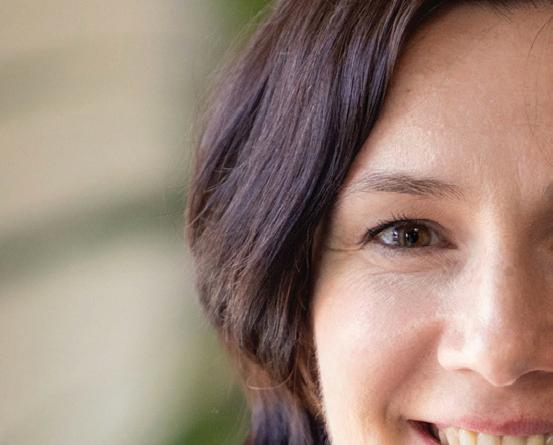
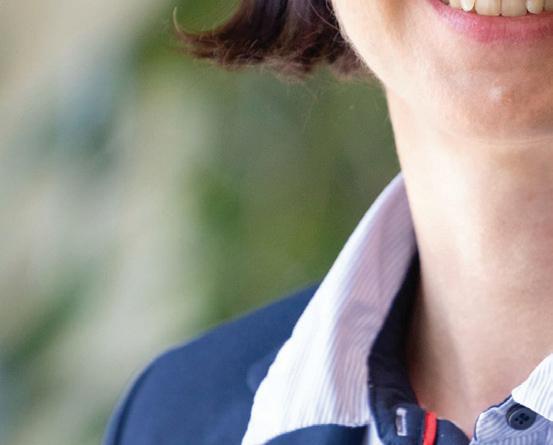



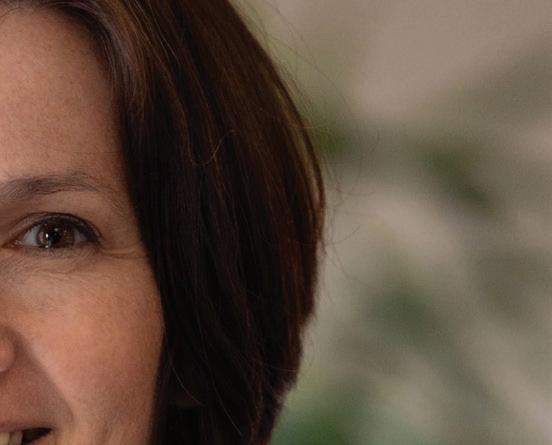


“EVEN A SMALL PERSONAL CHANGE CAN CREATE A RIPPLE EFFECT ON OTHERS OVER TIME.”


such as being open and caring. We also strongly support work-life balance with a 4-day work week in June and wellness perks, which are great ways to recharge.” at supportive culture is reinforced by small initiatives – an informal “Pier Pressure” WhatsApp group encouraging daily exercise and a #Ihaveastupidquestionchannel, which makes it safe for anyone to ask for help.
“As entrepreneurs, we can’t truly lead unless we’re at peace with ourselves,” she says. “My advice is to always start with yourself. Even a small personal change can create a ripple e ect on others and over time, help build a supportive environment.”




























was born from a simple but powerful idea – what if every employee in Ireland had the nancial knowledge to truly thrive?” at vision has shaped Employee Financial Wellness (EFW) since its founding nearly a decade ago. “We knew we couldn’t raise salaries, but we could raise awareness – and that’s exactly what we set out to do,” says Nick Lawlor, Director at EFW. From their rst nancial education programmes for corporate clients, EFW has grown steadily. “Fast forward to today and we’re proud to say we’ll educate over 10,000 employees this year across public and private sectors.”
Nick says wellbeing begins with reducing unnecessary stress. “Wellbeing is the absence of unnecessary stress – the kind that keeps you up at night. It’s about feeling grounded, focused and con dent that life is moving in the right direction.” at belief is embedded in the company culture. “At EFW, we live by our ‘mother, father, brother, sister’ principle, treating every client and colleague like family. If it wouldn’t sit right with someone you love, it doesn’t sit right with us.
“WELLBEING IS THE ABSENCE OF UNNECESSARY STRESS – THE KIND THAT KEEPS YOU UP AT NIGHT. IT’S ABOUT FEELING GROUNDED, FOCUSED AND CONFIDENT THAT LIFE IS MOVING IN THE RIGHT DIRECTION.”




at mindset keeps wellbeing at the heart of everything we do.”
EFW, he continues, de nes nancial wellbeing not by wealth, but by readiness. “Financial wellbeing isn’t about being rich, it’s about being ready. Ready for the life events that matter most – retiring early, buying a home, funding an extension or simply sleeping better at night.” Too o en, people assume it’s unattainable. “ e biggest misconception is that it’s out of reach. In reality, it’s about connecting your income and savings to your goals. If you can identify what you want and build a plan to get there, you’re already on the path. Money is just the tool – the real power lies in knowing how to use it.”
“We focus on small wins every day. Pressure is o en self-made, so we remind ourselves – progress over perfection. If a day doesn’t go to plan, we reset and go again. It’s like training for a marathon; not every run is perfect, but consistency builds strength.”
e data underscores why EFW’s work makes an impact. “91% of employees want their employer to do more for their nancial wellbeing,” he continues.
“And 88% actively look to their workplace for guidance beyond just pay and pensions. In today’s job market, people want more than a salary; they want a workplace that supports their whole life.”
Company philosophy is clear. “Business is a marathon, not a sprint. Small, consistent improvements beat big, unsustainable leaps every time.” And the mission remains unchanged. “Financial wellbeing is not a luxury, it’s a necessity. And it’s time we made it accessible to every employee in Ireland. at’s the mission. at’s EFW.”



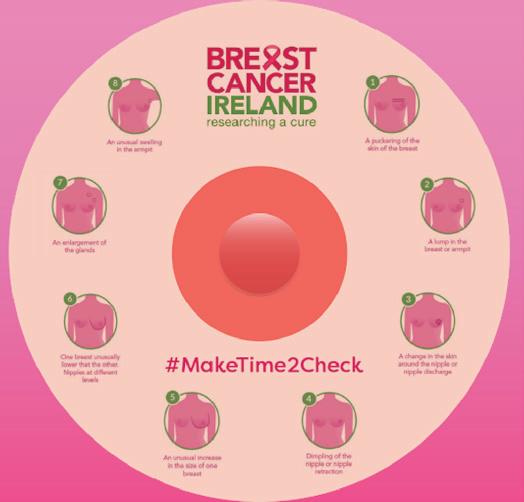












Trust takes years to build, seconds to break – this saying could just as easily be applied to the delicate relationship between customers and brands. In this day and age, customer engagement is everything. It is the di erence between an abandoned shopping cart and a completed transaction, between a buyer choosing your brand and going somewhere else, between a onceo purchaser and a returning customer. With that in mind, check out these ve tips on how SMBs can help enhance customer engagement and future-proof themselves…
Every business should be online, if they can. Not only does this help create visibility and accessibility among target audiences (both in Ireland and internationally), but it also supports sales e orts and builds rapport. From creating an e-commerce website to facilitating sales to using social media channels for customer service, a well-developed, mobile-friendly digital presence can help empower a positive and personalised user experience. This could turn prospective customers into loyal ones.
A recent PayPal and IDC survey* –involving 700 retail merchants and including 247 SMBs and 8,000 consumers across various markets – found that 78% of people in Ireland cited security concerns during transactions as their top concern when online shopping. In keeping with this sentiment, secure payment processing was cited as a key factor when deciding to purchase a product or service from a retailer or brand by 86% of consumers in Ireland. This shows how important security is when people are choosing brands, shopping online and progressing transactions. Therefore, businesses who fail to o er buyers a secure, streamlined checkout experience could possibly lose out.
As well as security worries and friction during the checkout process, more than half (59%) of consumers in Ireland cited a lack of a preferred payment method as a top concern when online shopping. On the other side of the payment coin, 92% of SMBs that have already adopted modern payment platforms reported increased revenue growth. This indicates that having a frictionless payment process, including a variety of payment options, could help increase conversions.
Jonas Breding is General Manager at PayPal Northern Europe
*InfoBrief, sponsored by PayPal, April 2025. Source: IDC Europe, Consumer Survey, January 2025 (N = 8000)













In the world of business, data is invaluable. Whether it’s the total number of sales or the average order value, leverage technologies which allow you to analyse and identify patterns in your customers’ behaviours. Then, it’s about developing strategies to either address a challenge or tap into an opportunity. For example, if you were to find that people were leaving your website during the payment stage of the checkout process, it might be time to review your payment options and processes.
It doesn’t matter if you have amassed a dedicated customer base in your local market in the first year of trading or have been selling cross-border to multiple markets for years, transparency builds trust. That means being upfront about any additional charges consumers might incur – especially if selling internationally – and providing clarity around delivery and returns policies. The more convenient it is for consumers to purchase your goods or services, the more likely it is for them to buy from, return to, and recommend your brand.
WHETHER YOU’RE SELLING TO CONSUMERS OR BUSINESSES, LONG-TERM CUSTOMER SATISFACTION AND BUSINESS SUCCESS IS BUILT ON EFFECTIVE ENGAGEMENT AND ENHANCED EXPERIENCE.
CREDIT REVIEW IS HERE TO HELP IF YOU ARE HAVING DIFFICULTY SECURING FUNDING FROM YOUR BANK
With rising global trade tensions Irish micro businesses must ensure they protect their financial stability. Tariffs and increased costs can eat into working capital, squeeze profit margins, disrupt supply chains, and delay growth plans. To stay resilient, ensuring you have access to finance to deal with short term shocks is essential.
Proactive planning today can safeguard your business tomorrow. In the shortterm businesses should engage with lenders early to secure credit before costs escalate. Traditional bank credit or alternative lenders offer tailored solutions to cover upfront costs, working capital, and market expansion, while Microfinance
Ireland now provides unsecured loans up to €50,000, ideal for micro enterprises. And remember, securing credit can take longer than expected.
Longer term, businesses need to plan to mitigate tariff risks, and there are noncredit funding sources that could also be considered. For example, Enterprise Ireland has grants to help exporters diversify – Market Research and New Markets Validation.
WHAT IF I AM HAVING DIFFICULTY SECURING CREDIT FROM MY BANK?
Credit Review can help. We provide an independent appeal service for businesses
Having difficulty getting a new business loan or restructuring your existing debt with your bank?
Established by the Minister for Finance, Credit Review is here to help.
Talk to the credit experts today on 0818 211 789 or visit creditreview.ie
who have had credit facilities refused, reduced, restructured/refinanced or withdrawn by AIB, BOI and PTSB for amounts up to €3m. We also operate a helpline – sometimes credit issues can be resolved without a formal appeal, which is appreciated by both banks and borrowers! Our appeals process is flexible and responsive. Our credit experts will engage directly and provide comprehensive insights into your credit application/ decline process.
For more information on our independent appeals process and information services, visit creditreview.ie to request a call back, or call the helpline directly on 0818 211789.
SFA PUBLISHES ITS 2026 BUDGET SUBMISSION

The Small Firms Association published its Budget 2026 submission which included a range of policy requests aimed at reducing costs, lowering taxes, easing regulation and fostering recruitment to small businesses. The SFA’s recent Small Business Survey, conducted by Amárach, showed that costs remain a challenge for many small businesses. Among the businesses that have experienced increased costs, there has been an average increase of 11.7% over the past 12 months.
SOME OF THE BUDGET RECOMMENDATIONS BY THE SFA ARE AS FOLLOWS:
Improved access for small business and small business start-ups to bank and non-bank finance, via the Strategic Banking Corporation of Ireland and Microfinance Ireland schemes
Reduction of the general Capital Gains Tax (CGT) rate from 33% to 20%
Simplification of the claim and administration procedure for the R&D Tax credit
A reduction in VAT related to the hospitality sector, particularly related to the provision of foods and nonalcoholic drinks
Reduce Stamp Duty on acquisition of commercial property from 7.5% to 4%
Increase the Small Benefit Exemption up to a value of €2,000 per annum and remove the reference to five benefits in a year.
“THE SFA’S RECENT SMALL BUSINESS SURVEY, CONDUCTED BY AMÁRACH, SHOWED THAT COSTS REMAIN A CHALLENGE FOR MANY SMALL BUSINESSES.”
11.7% the average increase in costs in the past 12 months for many small businesses
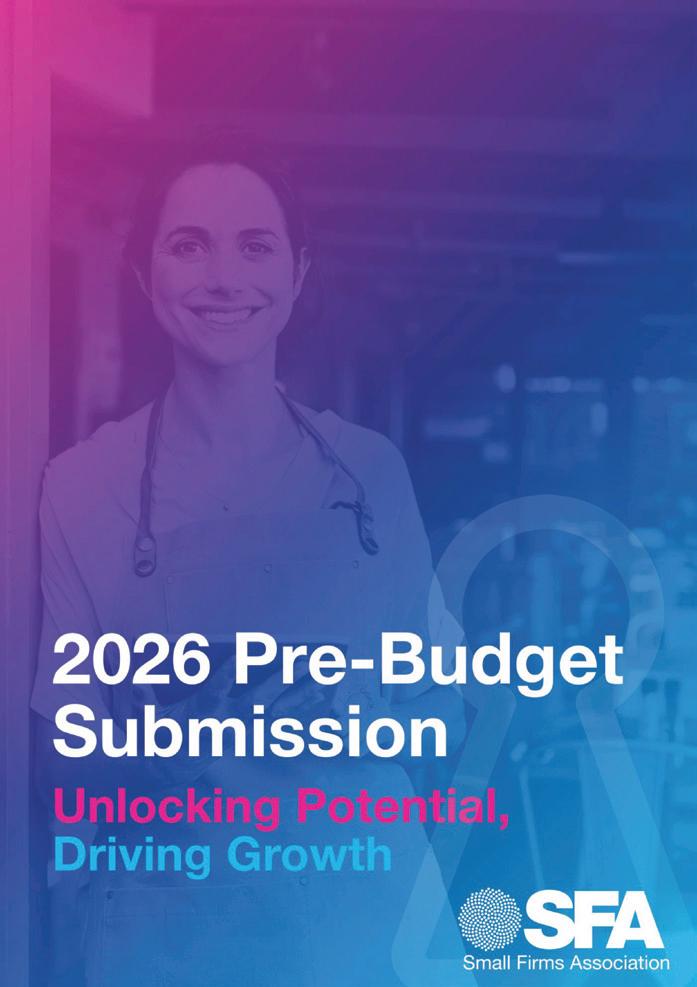
The Government’s new Action Plan on Competitiveness and Productivity is a critical policy that focuses on the economic areas that fall within our domestic sphere of influence. Arising from the rapidly evolving global landscape, the Government sees this whole-ofGovernment Action Plan as a strategic response to the challenges Ireland is facing.
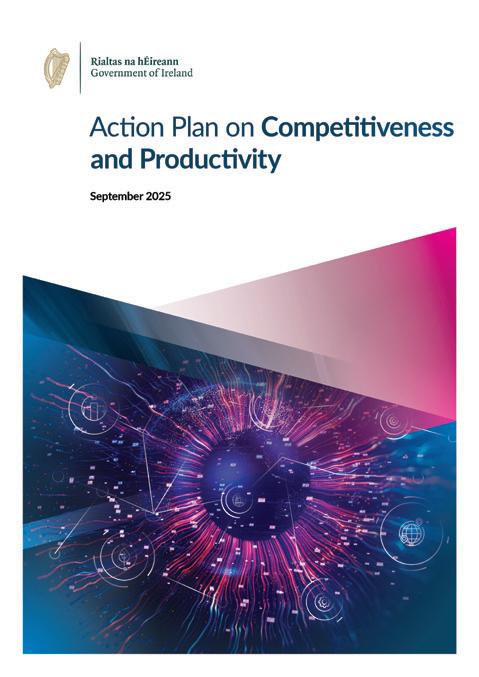
The Action Plan contains 85 actions for enhancing our competitiveness and productivity performance, with 26 of these identified as priority actions. The Action Plan contains three priority actions for SMEs. They are as follows:
1. Establish Start-up Ireland as a central coordinating body to enhance alignment and collaboration across the national start-up ecosystem
2. Establish an SME Scaling Fund to increase the available public capital for direct and indirect investment to support scaling, improve access and choice for founders and encourage new private capital into Irish market
3. Develop policy actions that will incentivise pension fund and institutional investor participation, either directly or indirectly, into scaling equity funds to further enhance the Irish scaling ecosystem and consider options for the development of incentives for the participation of retail savings in capital markets.
THERE ARE A BROAD RANGE OF ELEMENTS WITHIN THE ACTION PLAN DESIGNED TO ASSIST SMES. THEY ARE:
Reducing Regulation and Red Tape
A “red tape challenge” across Government is one of the priority actions. The aim is to simplify and reduce administrative burdens on SMEs by 2029
Part of this involves each Government department reviewing regulations for possible removal or simplification without undermining policy goals
There will be increased use of “Better Regulation” principles
SME Scaling and Access to Capital
Establishment of an SME Scaling Fund next year to provide more public capital (direct and indirect) to help SMEs grow
Improved access and choice for founders, encouraging more private capital into the market
Innovation, R&D & Digital/Technology Supports
A “step change” is proposed in State funding for innovation and in strengthening collaboration between industry and higher education
New structures to support artificial intelligence (AI), intellectual property (IP) and start-ups are planned
Examination of tax-based supports for innovation by all firms (including SMEs) to encourage adoption of new technologies etc
Cost of Doing Business and Business Environment
Measures to address high business costs: energy, regulatory costs, licensing delays, etc
A “Cost of Business Advisory Forum” will be established so that SMEs’ concerns (eg costs, regulation) are heard in shaping policy
Export, Trade and International Competitiveness
Supports for exporters facing market disruptions; streamlining exporter-oriented processes like security clearance
Strategic approach to market diversification to reduce over-reliance on certain markets
Infrastructure and Regulatory Delays
Reducing delays in planning, permitting and licensing is flagged as essential since such delays increase costs, slow investment and scaling
There are infrastructural constraints (energy, transport etc) that impact SMEs. Improving infrastructure delivery is part of the plan.




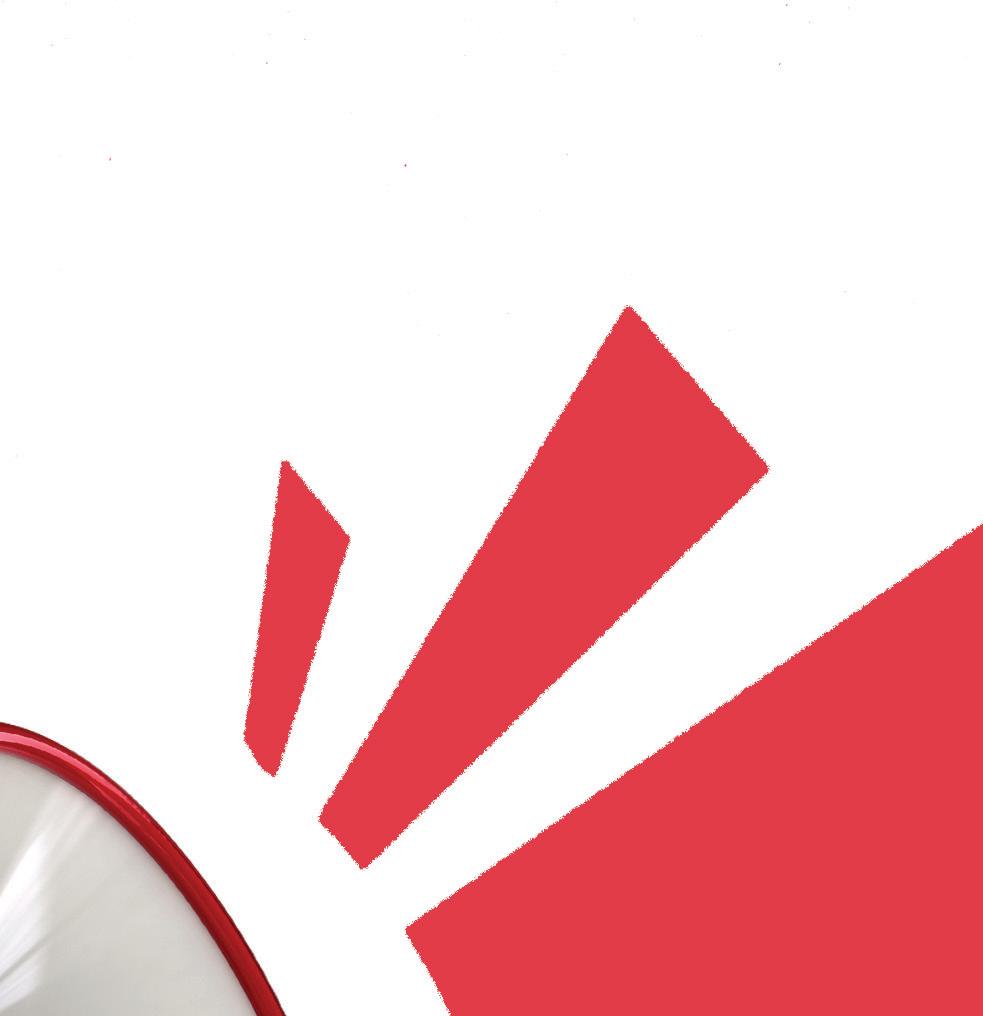



ONE IN FOUR BUSINESSES ARE NOT PREPARED FOR AUTO-ENROLMENT AND WITH THE JANUARY 2026 DEADLINE FAST APPROACHING, IT’S TIME FOR ALL EMPLOYERS TO TAKE ACTION, WRITES SUSAN WYLIE
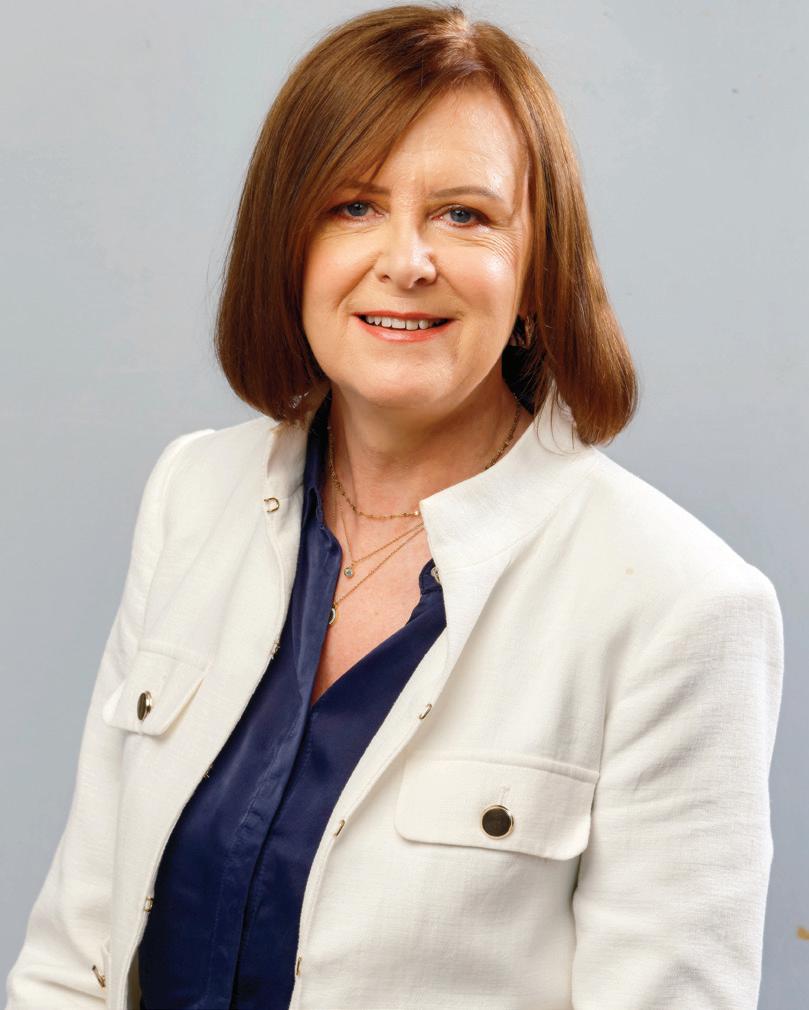


Wehave all seen the posters and heard the radio adverts and it looks like it is nally happening – pension auto-enrolment is due to commence on 1st January 2026.
WHAT IS IT AND WHY IS IT BEING INTRODUCED?
Pension auto-enrolment is a new retirement savings scheme. From the commencement date, it will be gradually phased in over the course of a decade from that date. It has been set up to provide a retirement plan for people without a work or private pension to save for retirement. e aim is to help these people save towards their retirement and not to be solely dependent on the State pension. e purpose of auto-enrolment is to supplement the State Pension, not to replace it.
WHAT EMPLOYEES ARE ELIGIBLE?
All employees in Ireland who: Earn over €20,000 per year Are aged between 23 and 60 Are not already in a pension scheme
Eligible employees will automatically be enrolled
If an employee is a member of an occupational pension scheme, Retirement Annuity Contract (RAC) or has a Personal Retirement Savings Account (PRSA) or PanEuropean Personal Pension Product (PEPP), where this is recorded in payroll, they will not be auto-enrolled
For the rst few years of auto-enrolment, any pension contribution greater than zero paid through payroll will be enough to exempt an employment
People who are self-employed and those who are not currently earning an income through an employer will not be enrolled and will not be able to opt in initially
If the employee has another employment for which pension contributions are not paid, they can be auto-enrolled or opt into the scheme in respect of that second employment.
The auto-enrolment scheme will be co-funded by both employers and the State
Employee contributions will be matched by their employers, with an additional top-up from the State – the cherry on top!
Employers will match the employee’s contributions up to 6%, with a maximum salary of €80,000
Employer contributions will be a taxable deduction as with all employer pension contributions.
If you do not have an occupational pension scheme in place for sta , then weigh up the options of an occupational pension scheme versus the State autoenrolment scheme. An occupational pension scheme may be more bene cial for your employees
If you already have an occupational pension scheme in place, then assess if it needs to be adapted to ensure compliance with the new legislation
All eligible employees must be automatically enrolled if they are not already in an occupational pension scheme
Employers will also need to be prepared to advise employees on how the scheme will operate, including details on eligibility, rates and tax implications
Ensure your HR/payroll department is ready for these changes.
We have looked at the underlying principles of the auto-enrolment scheme and we did some calculations.
Auto-enrolment has a salary cap of €80,000
Under auto-enrolment there is a State top-up, but no tax relief
An employee will get tax relief on contributions into an occupational pension scheme.
As the numbers demonstrate, auto-enrolment is better for standard rate tax payers, however an occupational pension scheme is more bene cial for higher paid employees. e onus is now on employers to take action and ensure they’re prepared for the changes that auto-enrolment will bring.
Assumptions
• Enrolled from age 22 - 66
• Assumed salary growth of 1.5% p.a.
•
•
•
* Information provided by Moneycube.ie
Irish companies face a constantly changing business environment. With global and national economic shifts, climate change and advances in technology, local enterprises need to remain agile and adaptable. Skills to Advance is a national upskilling initiative, created and funded by SOLAS, that assists business owners to develop new skills in their teams and increase their competitiveness through highly subsidised training.
Delivered flexibly by the 16 Education and Training Boards (ETBs) around Ireland, Skills to Advance programmes are accredited and available to companies of all sizes. Employers and employees can choose from in-person, online or blended learning formats, with tutor support and online resources to enhance the learning experience.
One such business benefitting from Skills to Advance upskilling is Great Southern Killarney, a landmark hotel that first opened its doors in 1854. While speaking to Caoimhe Spillane, Cluster HR Manager at Great Southern Hotel, about how the hotel has maintained such a stronghold in the hospitality industry, she details: “Our team is at the heart of everything we do, and providing opportunities for development not only strengthens individual confidence and skills but also supports the continued success of our business.”
The constant and rapid development of the hospitality industry is a key motivator for the hotel to upskill their team. To this, Spillane says: “We want our team to feel empowered, adaptable, and ready to embrace new challenges. The programme offers practical learning that complements their day-to-day

roles while encouraging creativity. It also aligns with our values of inclusivity and open communication, ensuring that every team member feels supported and valued in their growth journey.”
Employees completed several programmes with their local Education and Training Board, Kerry ETB, including Developing Your Leadership Style and Motivating People in the Workplace. Speaking of their experience with the ETB, Spillane notes: “Our experience with the ETB has been extremely positive. From the outset, the team were approachable, supportive, and made the process very straightforward. The course delivery was clear, engaging and tailored to suit the needs of our team, which ensured that the learning was both practical and enjoyable. Accessibility was excellent, with flexibility that worked well alongside their busy schedules. The content itself was highly relevant, providing valuable skills that could be applied immediately in the workplace.”
Spillane’s parting message to any business owner or employee considering
a Skills to Advance course is this: “My advice would be simple – do it! The Skills to Advance courses are a fantastic opportunity to invest in your team. They’re accessible, practical, and designed to build confidence as well as skills. The support from the ETB makes the whole process straightforward and the impact on day-to-day work is immediate. It’s a chance to grow, to feel empowered and to bring real value back to your workplace.”
Since 2019, over 100,000 training opportunities have been availed of under the initiative. All Skills to Advance programmes are accredited at Levels 5 and 6 on the National Framework of Qualifications. A wide range of programmes are available, such as healthcare, hospitality, manufacturing sustainability skills, digital business skills, AI and more.
To explore available programmes or discuss a tailored training solution, contact your local ETB today or visit skillstoadvance.ie
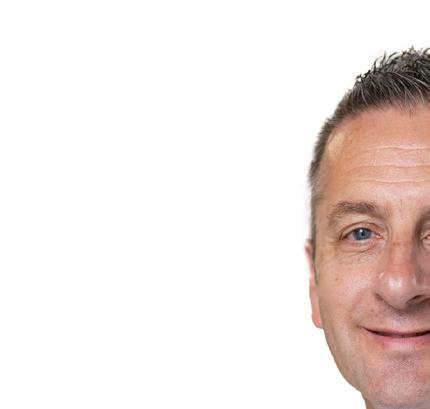

Sendless supply of chocolates. While indulging is part of the joy of Christmas, many of us nd ourselves struggling with fatigue, sluggishness or weight gain a er weeks of overindulgence. e good news is that healthy eating in the workplace doesn’t mean denying yourself; instead, it’s about building sustainable habits that keep energy levels steady and support overall wellbeing – while still allowing space for festive enjoyment.

less likely to reach for high-sugar snacks mid-morning.
A helpful framework is the 80/20 rule –enjoy your favourite indulgent foods about 20% of the time while sticking to balanced,
approach allows flexibility and enjoyment, without the guilt or “all-or-nothing” mindset
meetings, breakfasts or lunches, small tweaks can make a big di erence. Opt for wholegrain breads, fresh salads, lean proteins and fruit platters instead of pastries and sugary treats. People tend to follow what’s provided – and healthier choices benefit the entire team.
Often, what feels like hunger is actually mild dehydration. Keep a water bottle at your desk and sip throughout the day. Swapping out sugary drinks for water, sparkling water or herbal teas helps reduce excess calorie intake. If you rely on co ee, consider balancing it with green tea for a gentler ca eine boost and
Portion and pace




Focus on balance











Mindful portion sizes also matter. Using a smaller plate or bowl encourages moderation – you can always go back for seconds if genuinely hungry. Pair this with mindful eating practices – step away from your desk, slow down and really savour your meal. This reduces mindless snacking, improves digestion and leaves you more satisfied.


When it comes to lunch and workplace meals, aim for a balanced plate that includes lean protein, whole grains, vegetables and fruit. A colourful plate is often a nutritious one, providing essential vitamins and minerals that not only nourish but also sustain energy throughout the afternoon.
Enjoy food, don’t fear it








Smart snacking



The o ce biscuit tin is often hard to resist, especially when deadlines loom. Preparing healthy alternatives – such as nuts, fresh fruit or hummus with vegetable sticks – ensures you’ve got satisfying options within reach. These choices provide steady energy without the crash that often follows sugary snacks.
Above all, remember that food should be enjoyed, not feared. Healthy eating isn’t about an on/o switch; it’s about consistency. Allowing yourself the occasional festive indulgence is part of a balanced lifestyle. A positive relationship with food – one where enjoyment and nourishment coexist – is the best gift you can give yourself this Christmas season.
DeCare understands that a healthy workforce is a thriving workforce. With decades of expertise, DeCare stands as a trusted partner in promoting employee health and satisfaction.
Our commitment goes beyond coverage –it’s about empowering your team to see and smile confidently, fostering a culture of health and happiness.






Dental & Vision benefits contribute significantly to the overall wellbeing of your employees.
Showcase your commitment to employee health, attracting and retaining the best in the industry.
:
Ensure your employees maintain optimal oral health with our wide-ranging dental benefits, including preventive care, routine check-ups, and specialised treatments.
Productivity Boost:
Healthy employees are more engaged, focused, and contribute to a vibrant workplace.
Clear Vision Bene
When we think about health benefits in the workplace, oral care may not always be the first option that comes to mind. Yet, oral health is far more than just having a bright smile—it is a critical component of overall health and wellbeing. The mouth is often called the gateway to the body, and for good reason: it is where nutrition, communication, and first impressions begin. But it is also a window into broader health issues. Poor oral health has been linked to heart disease, diabetes, respiratory illness, and even certain cancers. Simply put, caring for the mouth means caring for the whole person.

Oral diseases are not rare or minor concerns. In fact, they represent the most common non-communicable disease (NCD) worldwide, affecting billions of people every year. Conditions such as tooth decay, gum disease, and oral infections often go untreated, leading to pain, tooth loss, and wider health complications. Despite their prevalence, oral diseases are largely preventable with timely care, education, and routine check-ups. Unfortunately, cost is a major barrier to accessing dental services, with many individuals delaying visits until problems become severe.
This is where workplace dental benefits play a transformative role. By providing employees with access to dental care and education, companies are not just helping their teams maintain healthy smiles—they are actively protecting overall health and preventing longterm illness. A small investment in preventative care today can save significant costs tomorrow, both for individuals and for healthcare systems more broadly.
For businesses, offering dental benefits and wellbeing initiatives is more than an act of goodwill—it is a strategic decision. Employees with access to regular dental care are less likely to miss work due to dental emergencies, more likely to feel valued, and better able to bring their full selves to work. Research consistently shows that oral pain and disease can negatively
impact productivity, concentration, and confidence. Conversely, when employees feel well—when they can eat, speak, and smile without discomfort—they are more engaged and present in their roles.
Choosing to prioritise dental care as part of a benefits package sends a strong message: that employee wellbeing is not limited to the basics but extends to holistic health. It demonstrates foresight, recognising that oral health cannot be separated from physical, mental, and even social wellbeing. A confident smile improves interactions with colleagues and clients alike, while the absence of pain reduces stress and enhances quality of life.
At DeCare, we chose dental benefits because we see firsthand the difference they make. Oral health is not a luxury— it is an essential pillar of health. By equipping employees with the means to protect and maintain their oral health, we are investing in healthier, happier, and more resilient workplaces. The mouth truly is the body’s gateway. By opening that gateway to care, businesses can unlock not only healthier employees, but stronger, more sustainable organisations.
Oral health specialist Dr Dave Casey is Head of Health Promotion for Ireland and Europe at DeCare, Ireland’s only specialist dental and vision insurance provider. For more information visit decare.ie.













































IF YOU’RE A JAZZ LOVER, CORK CITY IS THE PLACE TO BE THIS OCTOBER BANK HOLIDAY WEEKEND. GUINNESS CORK JAZZ FESTIVAL DIRECTOR, MARK MURPHY, CHATS TO BETTER BUSINESS ABOUT WHERE IT ALL STARTED













might never have existed. In 1978 Jim Mountjoy, the marketing manager at the Metropole Hotel in Cork, was facing into a bank holiday weekend of lost revenue. A bridge event had been cancelled and with it, a significant number of room bookings. Instead of shrugging his shoulders and putting the cancellation down to bad luck, Jim got to thinking – what if The Metropole ran a jazz festival? Regular sessions at the hotel with jazz musician Harry Connolly were popular with guests, so extending into a mini-festival didn’t seem like too outlandish a proposal. Cigarette brand John Player also thought it was a good idea, sponsoring the event to the tune of £7,000. That first year saw English jazz legends Ronnie Scott, George Melly and Kenny Ball perform at the festival. In an interview with the Irish Examiner, Jim Mountjoy described Scott taking to the stage in the Metropole’s ballroom and telling a 300-strong audience









that it “was the first time he’d seen dead people smoke.” Over the next few years, Jim and his team would book some of the world’s most famous jazz musicians including Ella Fitzgerald, Sonny Rollins, Dizzy Gillespie, Herbie Hancock and Buddy Rich. Jazz lovers travelled from across the country to hear their favourite artists and from abroad too; a ferry from Swansea to Cork was dubbed the “jazz boat” while the “jazz train” brought festival goers from Dublin. In 1982, Guinness replaced John Player as the main sponsor and continues to sponsor the event today, which has become a cultural institution and one of Europe’s most celebrated music events. And it’s all thanks to a cancelled bridge event back in 1978. The Guinness Cork Jazz Festival is big business in the rebel county. With over 100,000 jazz lovers visiting the city and surrounding region, the event is worth an astounding €7,000 per minute to the Cork economy. Its reach has extended beyond the city in recent years to areas like Douglas and Kinsale, making it a key cultural draw for both domestic and international visitors. In 2024, local businesses in Cork city, Douglas, Blarney and Kinsale reported a 12% increase in sales compared to the year before. It’s hoped that this year’s festival, set to run over the October Bank Holiday weekend, will build on that momentum, with over 500 musicians expected to perform at 100 events.














Headliners include Cymande, JP Cooper, Orchestra Baobab, techno pioneer Jeff Mills, hip-hop collective The Pharcyde and Sienna Spiro. If you’ve missed out on a ticket for one of the big acts, the Guiness Music Trail offers free live music in over 70 venues. The weekend is also filled with lots of free outdoor gigs, perfect for families looking to soak up the atmosphere.

Mark Murphy is Director of the Cork Jazz Festival. He’s held the role for five years, although he has worked with the event for almost 20. Mark’s background is as a DJ and musician. In 2001, he founded ChoiceCuts, a music marketing and promotions company and in 2012, he took over The Sugar Club in Dublin at a time when the venue was struggling. By focusing on niche

SINCE THE 1990S, AVERAGE ANNUAL VISITOR NUMBERS HAVE EXCEEDED 40,000 THE CORK JAZZ FESTIVAL BRINGS AN ESTIMATED €45M TO THE LOCAL ECONOMY
JAZZ LEGENDS LIKE ELLA FITZGERALD, SONNY ROLLINS, DIZZY GILLESPIE AND BUDDY RICH HAVE PERFORMED AT THE FESTIVAL
acts to appeal to audiences that weren’t catered for elsewhere, Mark re-established the venue as a space for jazz, hip-hop, R&B and soul.
At Cork Jazz Festival, the aim is to “match the music and performance with the venue.” About 80 pubs and venues in Cork city, Douglas and Kinsale host both ticketed and free gigs throughout the event. “We approach venues that we feel share the ethos of the festival, which is to celebrate jazz and music in general through a mix of live performances, street entertainment and community involvement. The festival is rooted in jazz, but we’re not afraid to push the boundaries of the genre and include acts like Damon Albarn, Macy Gray and De La Soul.”
This year’s programme is the biggest yet – more ticketed shows than ever before will run and an extra date has been added. “Last year was a massive success and although we’re determined to do even better this year, it’s a big ask. You just have to keep your pencil
“THE FESTIVAL IS ROOTED IN JAZZ, BUT WE’RE NOT AFRAID TO PUSH THE BOUNDARIES OF THE GENRE.”
sharp, not sit on your laurels and keep going. There’s an awful lot of moving parts when you’re organising a festival of this size, from marketing, sales, PR, production, etc. Everyone shares the same ambition, which is to produce an amazing event.” Cork Airport also plays a central role in the festival; as part of its 2025 Community Fund, the airport has renewed its partnership with the festival and is set to welcome thousands of visitors from Ireland and further afield. There’ll even be live performances in the terminal as part of the “Big Fringe”, a series of free gigs on the streets of Cork.
The Metropole is where it all started for Cork Jazz Festival and today, the hotel still plays a major role in the event. Just recently, two of its historic ballrooms were renovated, just in time for the festival. “There’s an amazing history and legacy there. By trying to turn an off weekend into an on weekend, Jim Mountjoy essentially created one of the biggest city festivals in Ireland. Forty-seven events later, it’s going stronger than ever.” Over the years, Mark’s been fortunate to witness some of the world’s greatest jazz musicians. “Hermeto Pascoal, a fantastic musician from Brazil who recently passed away, played at the festival three years ago. His performance was amazing. Gregory Porter played lasy year, he was fantastic, as were De La Soul and Hypnotic Brass Ensemble, who always deliver a great show. It’s difficult to choose just a few as we’ve had so many amazing acts.” This year, Mark’s looking forward to seeing The Pharcyde. “They’re doing really exciting stuff. There are lots of really promising new acts for people to enjoy this year. And that’s what it’s all about – creating an accessible event that gives people unprecedented access to a huge mix of artists and celebrates all that Cork has to offer.”









Suppo r t loc a l to l i ft us a l l




All Ri s e All Ri s e


Ch am p i o n G r ee n . i e







WITH A HIGHLY SKILLED WORKFORCE AND A GROWING APPETITE FOR IRISH FOOD AND DRINK, JAPAN HAS MUCH TO OFFER IRISH COMPANIES. HERE’S WHAT YOU NEED TO KNOW IF YOU’RE THINKING OF DOING BUSINESS IN THE LAND OF THE RISING SUN

SKILLED WORKFORCE
Investment in education in Japan is taken very seriously and enrolment in higher level education is much higher than the world average. According to 2022 figures, approximately 64% of all eligible Japanese children started university or other tertiary education, compared to an average of just 38% worldwide. That focus on education is paying off – Japan is famous for the quality of its education systems and its highly skilled workforce.


WithUS trade tari s stoking up uncertainty, the Irish Government is eyeing up other nations as alternative trade partners. Japan – one of the world’s largest economies – has been identi ed as a major growth market for Irish companies. Traditionally, Irish exports to Japan have been made up of pharmaceutical products and med-tech and while those areas are still strong, Irish agri-food companies have also started to make waves. In 2024, Irish food and drink exports reached €162 million. at growth has been facilitated by the introduction of the EU-Japan Economic Partnership agreement in 2019, which gave Irish food producers better market access and slashed tari s, particularly for key agrifoods like meat and dairy. Today demand for Irish meat in Japan, especially beef, is huge – in 2024 Ireland exported over 3,300 tonnes of beef and beef o al to Japan, valued at approximately €25 million. e market for Irish whiskey is also growing, with the Irish Whiskey Association describing Japan as one of Ireland’s “more interesting markets”. As trade with the US increasingly becomes more complex, newer markets like Japan could present Irish companies with a host of opportunities.
Irish tech-driven firms, along with home-grown food and drink companies, got the chance to show off their wares in Japan this year. More than 20 food and drink companies, including big players like Kerry Group, Jameson, Lakeland Dairies, Carberry, ABP and Tírlan, took part in a trade mission to South Korea and Japan.
On the tech side, Minister for Enterprise, Tourism and Employment Peter Burke led a trade mission to Japan to boost collaboration between the two countries and support Irish companies that want to scale-up in the market over there. Twenty-three Enterprise Ireland clients also made the trip, including the likes of ICON plc, Aerogen, Fexco, Fenergo, Daon, Druid Software, TFI Marine and Kitman Labs. Trade between Ireland and Japan now exceeds €21.5 billion, while exports from Enterprise Ireland clients to Japan have doubled in the last 10 years, reaching €323 million in 2023.
During the trade mission, a number of companies announced plans to expand into the Japanese market:
GRIDBEYOND
An Irish company that provides AI technologies to enhance energy flexibility and optimisation solutions, GridBeyond has commenced energy trading in Japan using a front-of-the-meter (FTM) battery asset in collaboration with PORT Inc.
AEROGEN
A Galway-based leader in acute-care aerosol drug delivery, Aerogen is opening a new operational hub and office in Tokyo and plans to expand its team to approximately 30 people in the next five years.
OTONOMEE
Otonomee, an Irish customer support outsourcing company, is hiring CX and tech professionals in Japan to meet growing global demand.
KITMAN
Kitman Labs, a Dublin-based tech platform which harnesses AI to drive performance, has announced J-League Division 1 soccer, Kyoto Sanga, as its latest partner.
Japanese businesses favour a gentle approach over more aggressive-leaning tactics. Patience and careful consideration of the proposals being put forward are key – visiting businesses that drive too hard on decisions and deadlines may come across as disrespectful.














In 2022, the Japanese government revealed plans to reach a target of 100 unicorns and 100,000 startups through a combination of initiatives and foreign investment. One such initiative is the J-Start Program, which aims to support and promote promising Japanese startups, particularly those with global potential. There are also a number of start-up visas which promise to make it easier for foreign entrepreneurs to start enterprises in Japan. Some offer a stay of up to two years and remove many of the former obstacles to securing a visa.
Although it’s estimated that there are less than 2,000 Irish people living in Japan, St Patrick’s Day is celebrated in various cities across the country. Asia’s oldest and biggest St Patrick’s Day Parade takes place in Tokyo. It began in 1992 with about 60 people taking part; today, around 1000 bands, musicians and dancers march along Omotesando, Tokyo’s grandest boulevard. Irish traditional music is popular in Japan – in the late 1990s, Riverdance took Japanese audiences by storm and Irish dance schools can be found today in Tokyo and Yokohama. A review of Riverdance in one Japanese newspaper reported that “the 5,000-strong audience were intoxicated”.

Japanese companies are
Japan’s more formal way of doing business shouldn’t deter Irish firms from looking to gain a foothold in the Japanese market. Etiquette and protocol are highly valued so it’s important to be respectful and show interest in understanding Japanese culture. Attire should be formal, bowing is encouraged and an initial exchange of business cards is crucial. Gift-giving is also considered an important part of business culture as a way of building and maintaining relationships. Gifts should be appropriate for the recipient’s position and status and should be of high quality. It’s also customary to present the gift with both hands.
It’s estimated that only 8% of Japanese people are fluent in English, with only 15-28% having some conversational skills. That makes trying to do business in Japan much more difficult if you haven’t mastered at least some Japanese to get by. Documents will also be in Japanese and some banks only provide services and support in the local language. So if you’re looking to do business in Japan, either enlist the services of a translator or make sure you get your hours in on Duolingo.









“WHAT WILL DISTINGUISH THE NEXT RANGE OF SUSTAINABILITY TOOLS ARE SOLUTIONS ROOTED IN REAL DELIVERY, BRIDGING THE GAP BETWEEN AMBITION AND MEASURABLE PROGRESS.”
Smart mobility is now central to climate action, community wellbeing and economic growth, while congestion, pollution and emissions put organisations under pressure to show real progress towards net zero. ESG is a framework that allows organisations to measure their impact with reference to the United Nations Sustainable Development Goals (UN SDGs). Too o en, ESG reporting is approached as an obligation rather than a strategic advantage.
Numbers can tell uncomfortable truths, but they can also point to extraordinary opportunities. Your ESG score highlights the nancial risk in your business operations. Your sustainability strategy guides you to mitigate that risk and enables data-driven decision-making, helping you to achieve your goals and act with con dence in an increasingly complex regulatory environment.
At KINTO Join Limited, sustainability has always been part of our core identity. We were founded within Toyota Financial Services, dedicated to Toyota’s evolution towards becoming a mobility company. Our story began with KINTO Join, a unique journeyveri cation technology that helps organisations not only facilitate carpooling, cycling and walking options for their sta , but also track and report CO2 savings.
In an era de ned by a rising cost of living, in ation and tra c and parking congestion, how we measure sustainability must go beyond carbon reduction. We must rethink the concept of shared mobility to truly unlock its bene ts – nurturing community, saving time and money and encouraging a healthier way of living. ese are real-world, human gains that ow from a smart sustainability strategy.
As organisations further intensify their decarbonisation e orts, the challenge moves beyond ambition and towards execution. To achieve success, organisations must leverage solutions that transform data into actionable insights, embed sustainability into everyday decisions and produce audit-ready reports, leading to pragmatic and e ective decarbonisation plans.
What will distinguish the next range of sustainability tools are solutions rooted in real delivery, bridging the gap between ambition and measurable progress. Backed by data and practical expertise, we can empower organisations to accelerate their reporting process and develop answers to the question of what to do next.
Patrizia Niehaus is CEO at KINTO Join Ltd www.kintozero.com
While sustainability does not result from reporting alone, when done well, it enables reporting to become a blueprint for better decision-making. When sustainability is embedded in your growth strategy, it delivers resilience, trust and long-term value for your customers and your organisation.
6AM I’ve always been an early riser. It’s a habit I picked up in my 30’s while working with Accenture in the US. Back then, long commutes meant I needed to be up before dawn and the routine has stuck with me. Breakfast is simple – water and fruit. My mornings are fuelled instead by information. Having spent most of my career in FinTech, I naturally start the day by diving into financial news feeds and global business updates. It keeps me sharp and connected to what’s happening in the markets. Before I get to the o ce, I usually do the school run. Those moments are some of the best parts of my day – time with my family grounds me before I switch into work mode. 9AM Work begins with a 15-minute stand-up meeting with my executive team. It’s a practice rooted in lean and agile methodologies and we cover three things – what we achieved yesterday, what we’re focusing on today and any blockers we need to remove. That quick check-in gives me instant visibility on the business and a chance to o er support if it’s needed. From there, I like to keep my mornings for internal meetings. At ConnectGreen, we help organisations build and manage their own portfolio of natural assets. We give companies the tools to measure and report on biodiversity and carbon with precision, which helps them meet the Corporate Sustainability Reporting Directive (CSRD) and Corporate Sustainability Due Diligence (CSDDD) obligations, while also insetting or o setting their emissions. Later this year, I’ll be joining the Business Post ESG Summit panel on sustainability, which I’m looking forward to. 2PM After a sandwich, afternoons are for customers, partners and the landholders and farmers who make up the ConnectGreen Nature Asset portfolio. Meeting them on the ground is vital. It keeps our work real and ensures the solutions we’re building directly support those managing natural assets. 6PM My wife and kids are the best part of my day, so evenings are spent with them. As for exercise, I’ve never seen the need for a gym. Out in the back garden, I’ve got about four tonnes of seasoned wood and I keep fit by chopping it with an eight pound axe. It’s physical, satisfying and a great way to clear the head. 9.30PM I’m in bed early most nights. That’s my rhythm – early starts, structured leadership, time with family and a relentless drive to show how business and nature can grow together.
WWW.CONNECTGREEN.IE
AN EARLY START, STRUCTURED ROUTINE AND FAMILY TIME KEEP JOHN KELLEHER ON THE STRAIGHT AND NARROW


































































































John Kelleher, CEO, ConnectGreen
































































































































































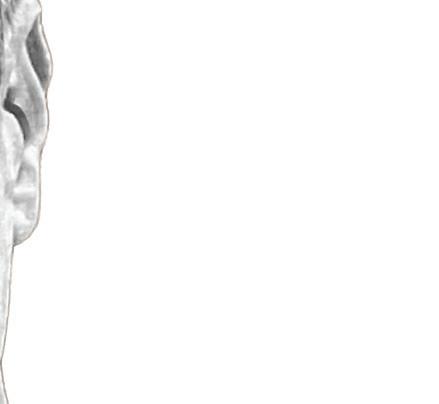





























“WE GIVE COMPANIES THE TOOLS TO MEASURE AND REPORT ON BIODIVERSITY AND CARBON WITH PRECISION.”
